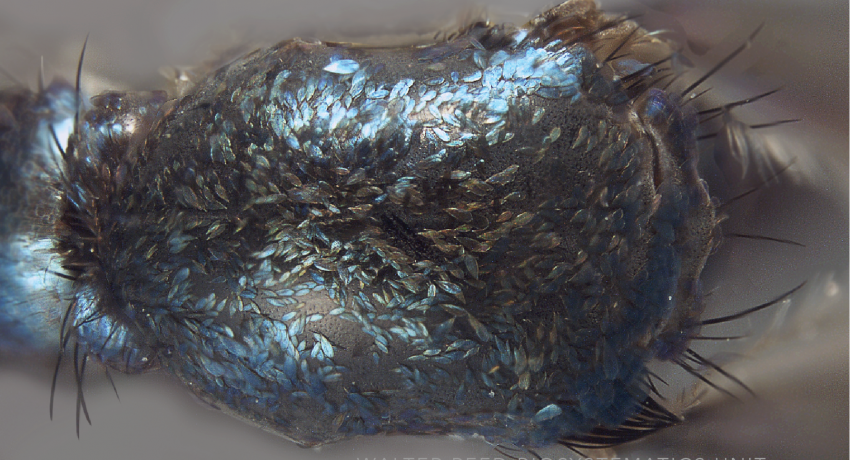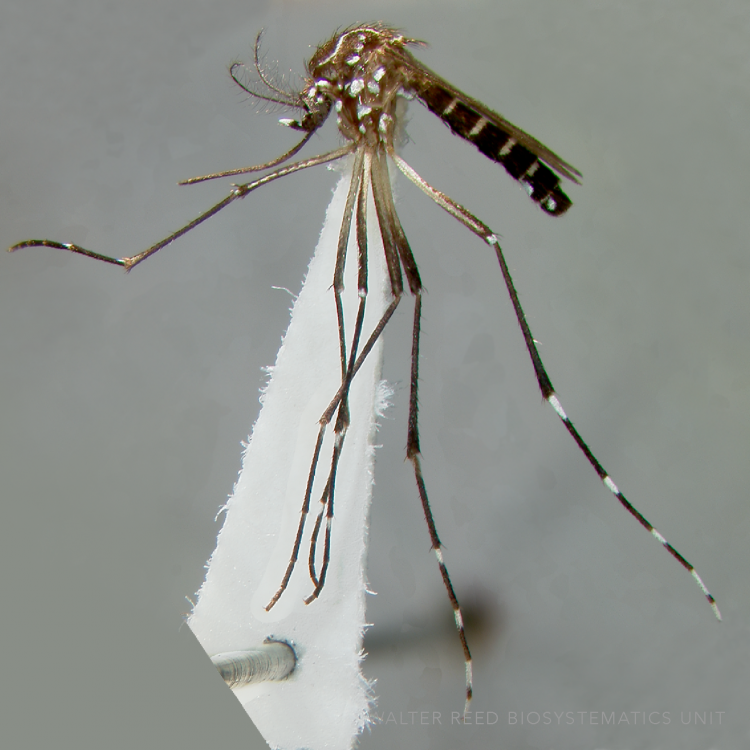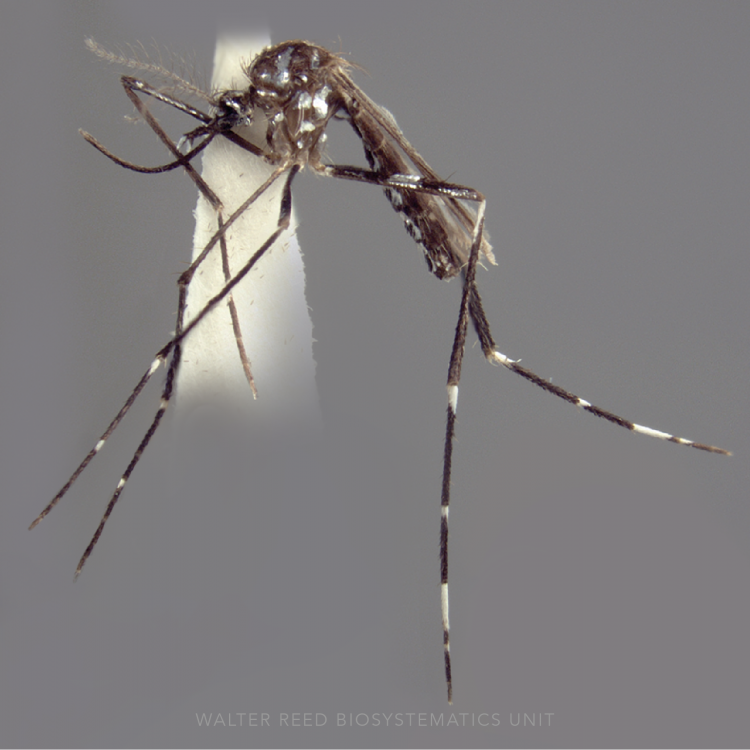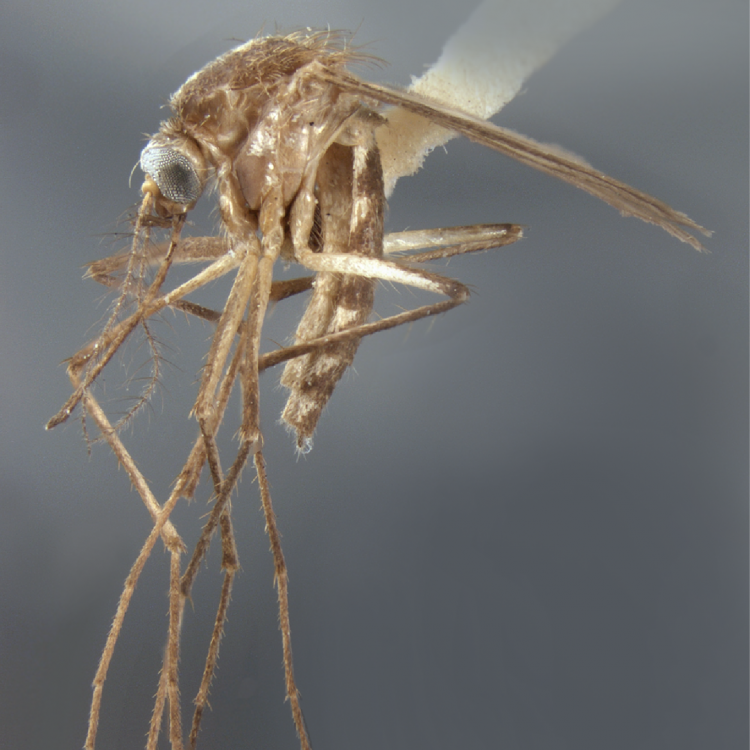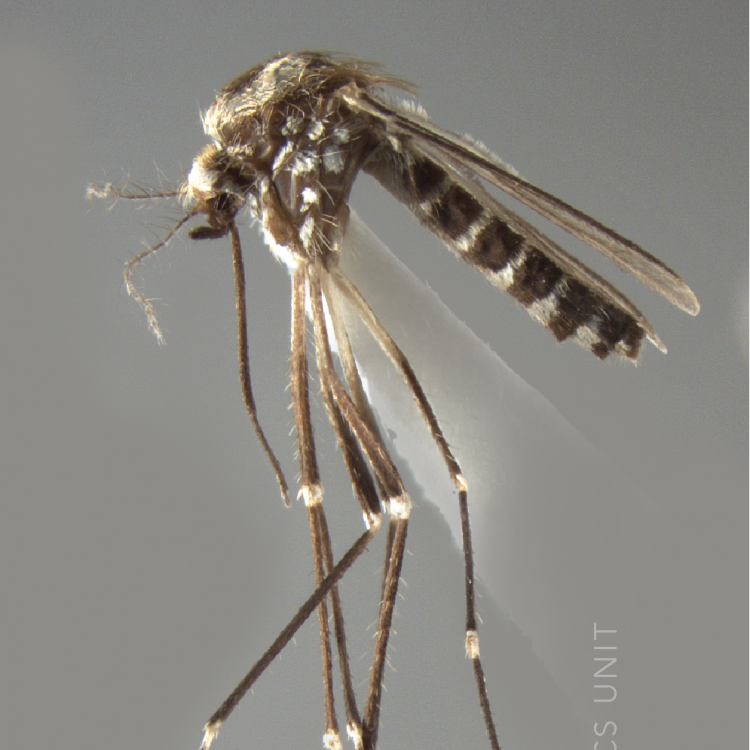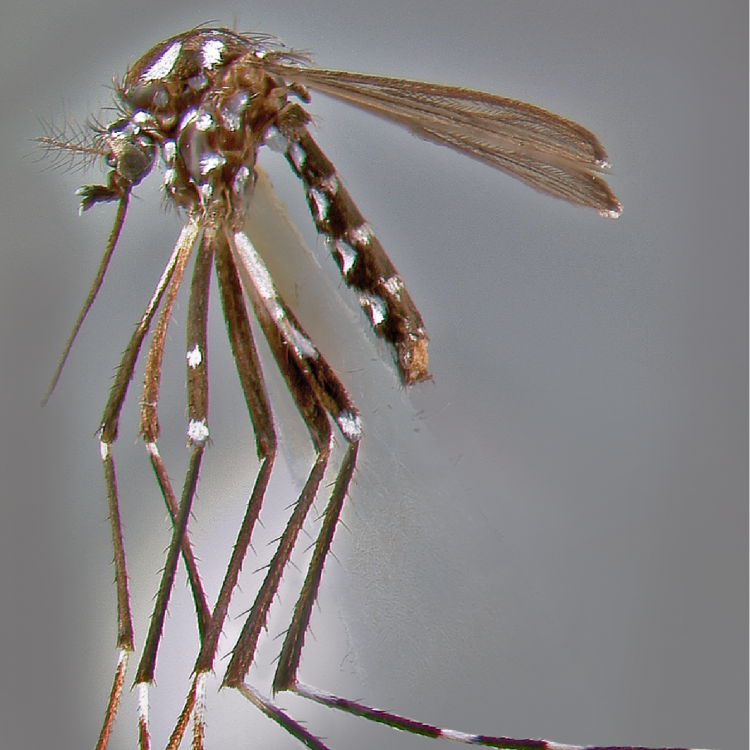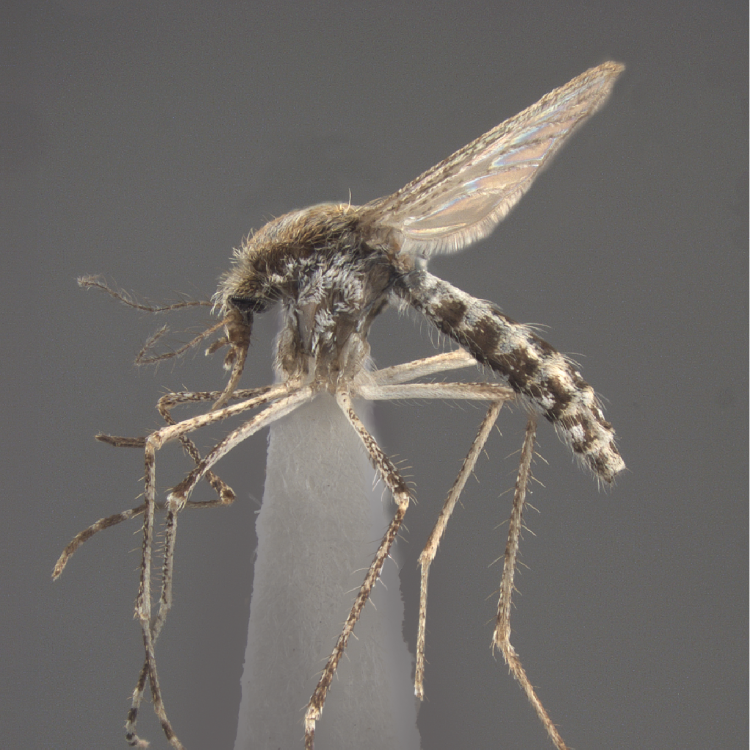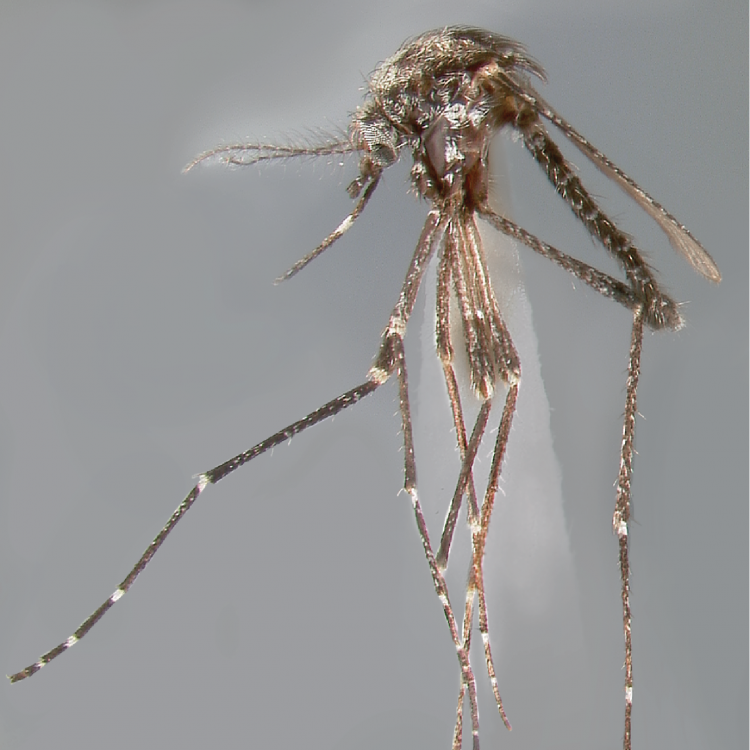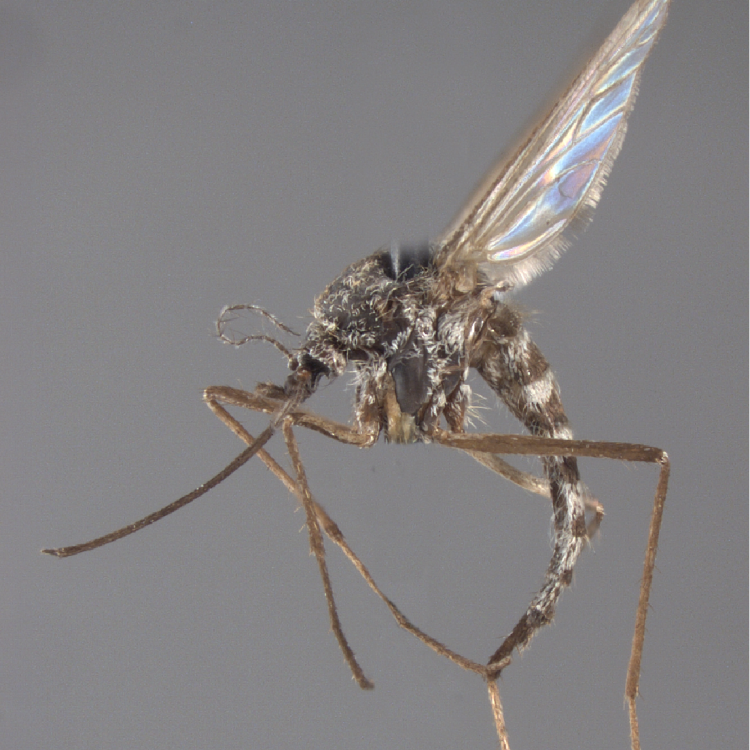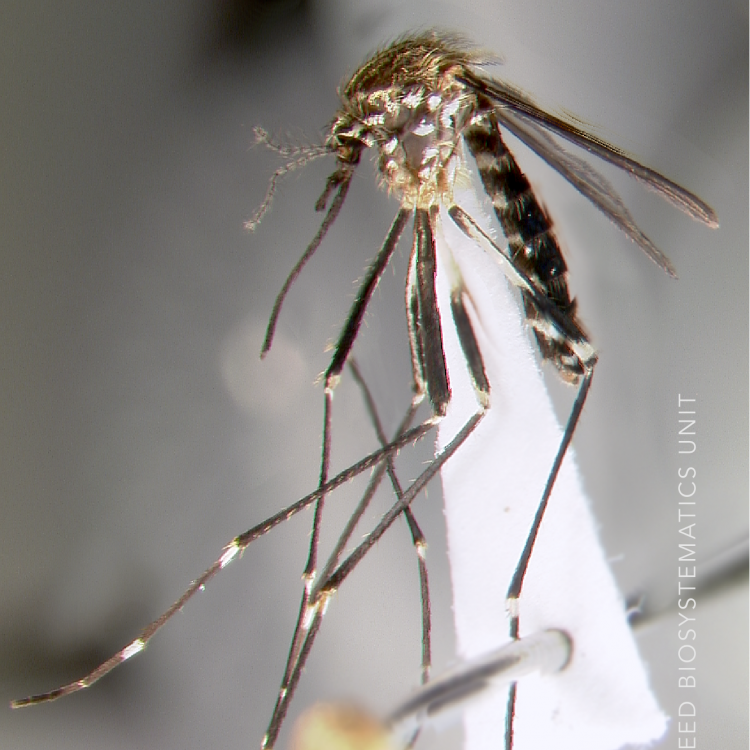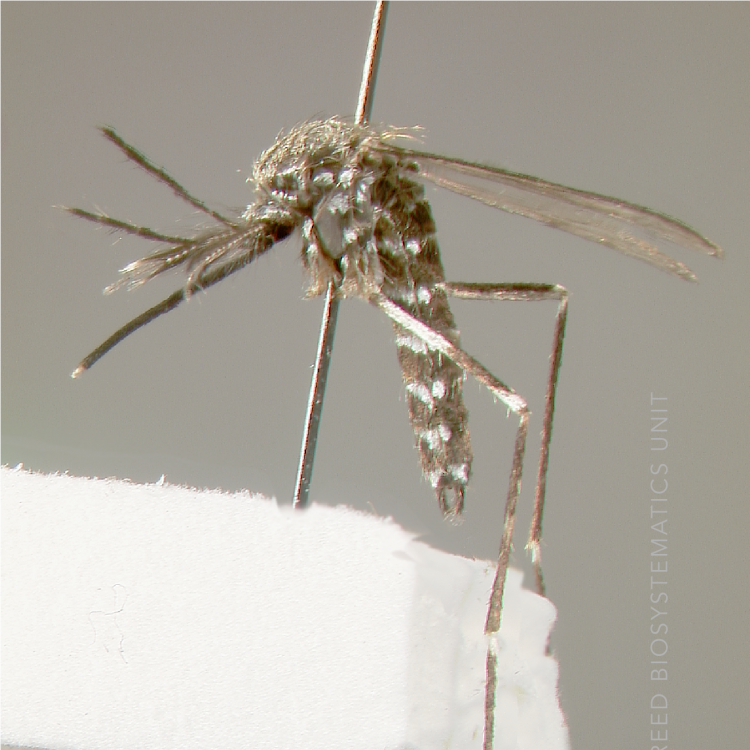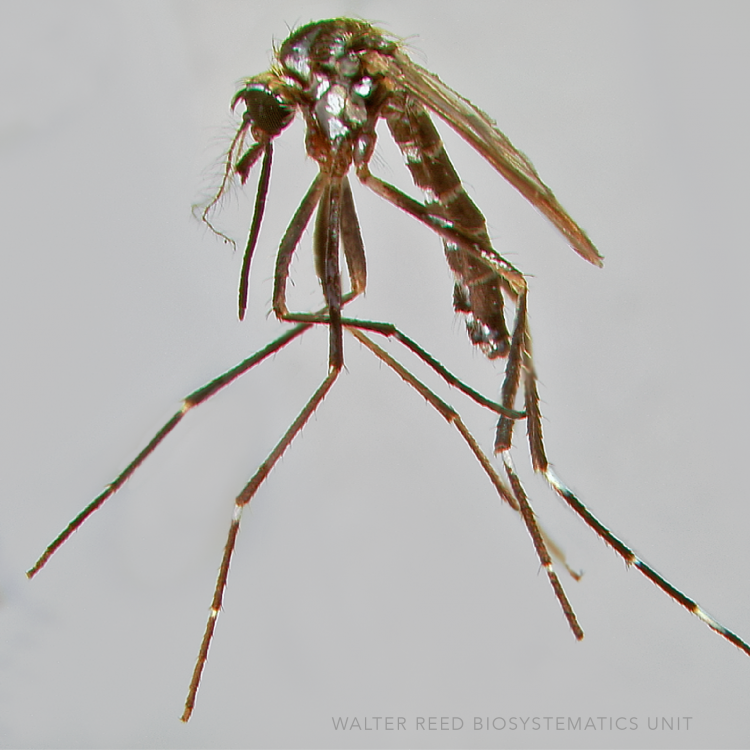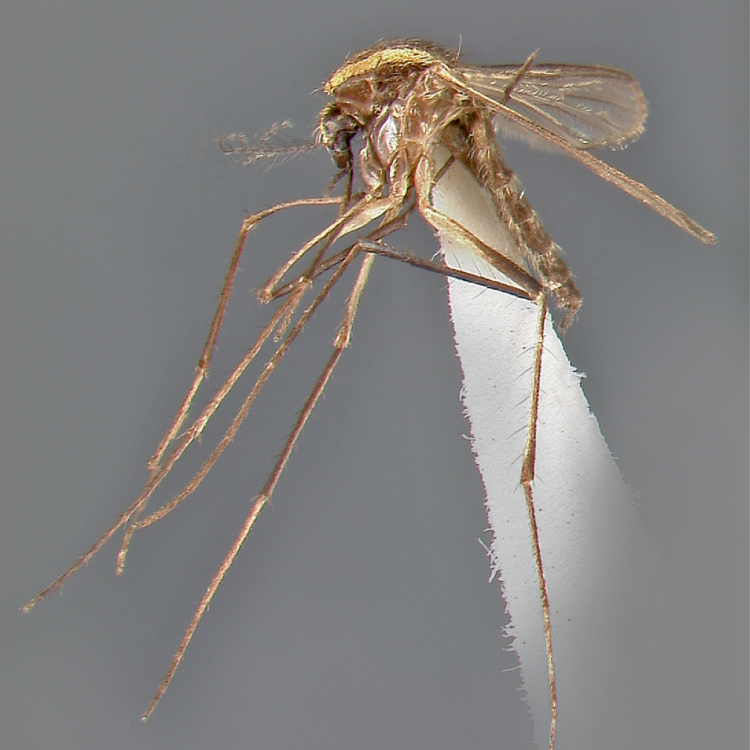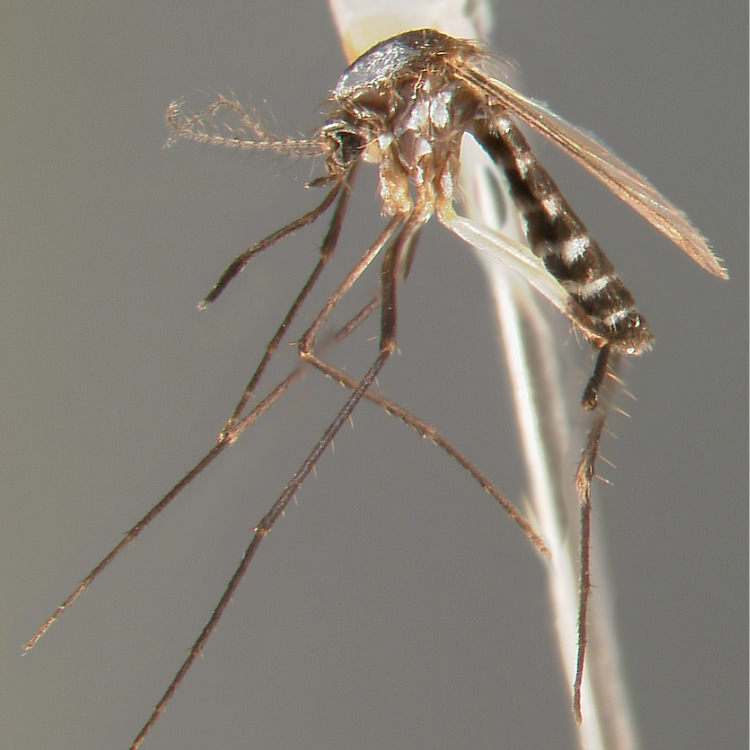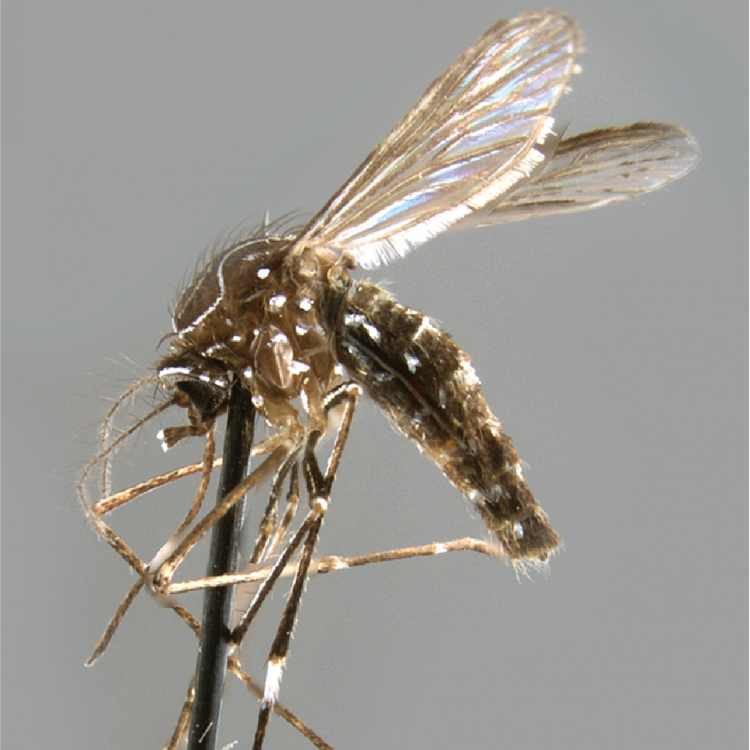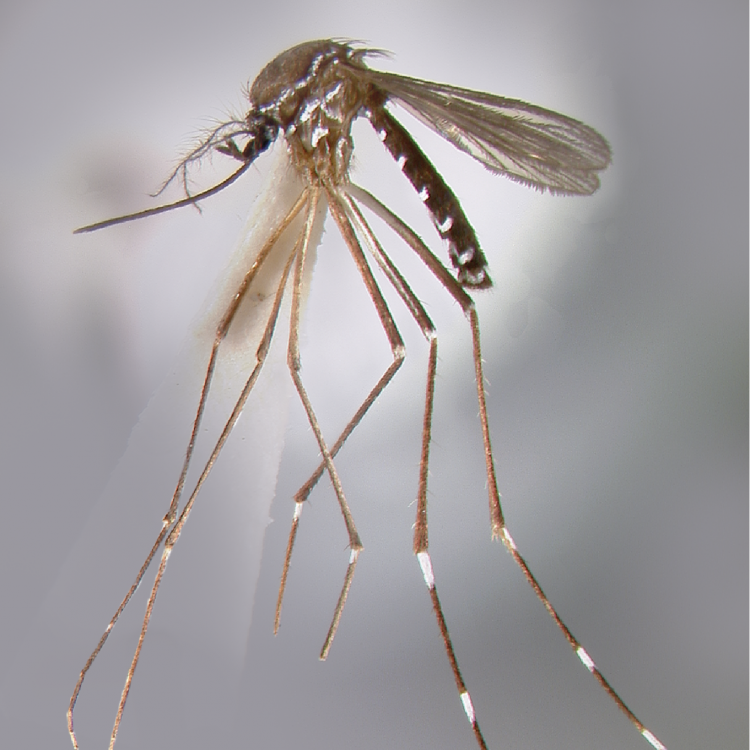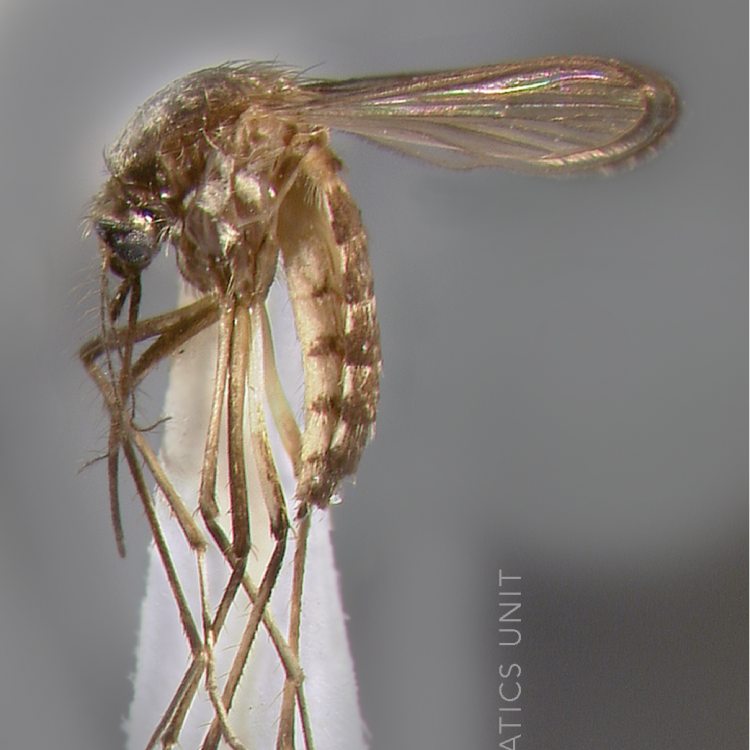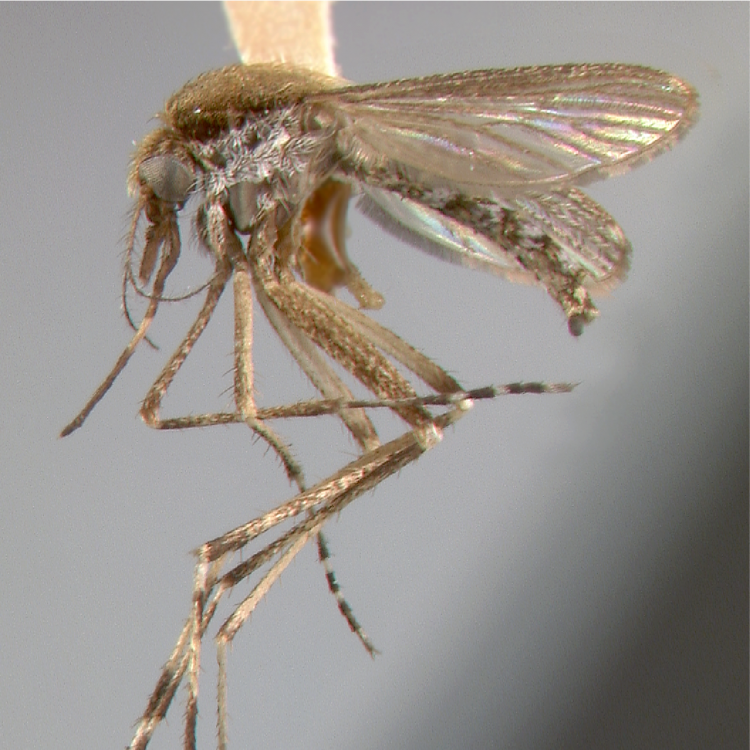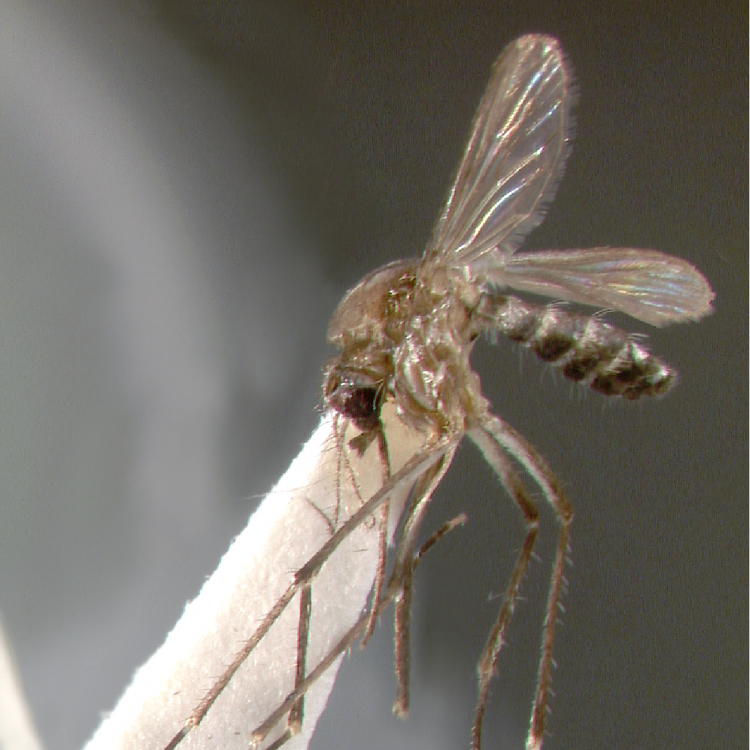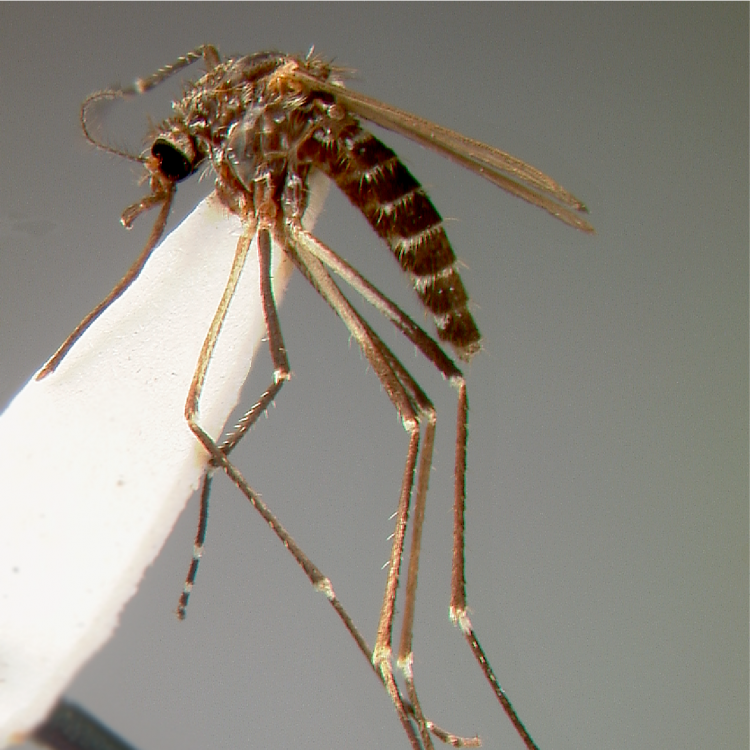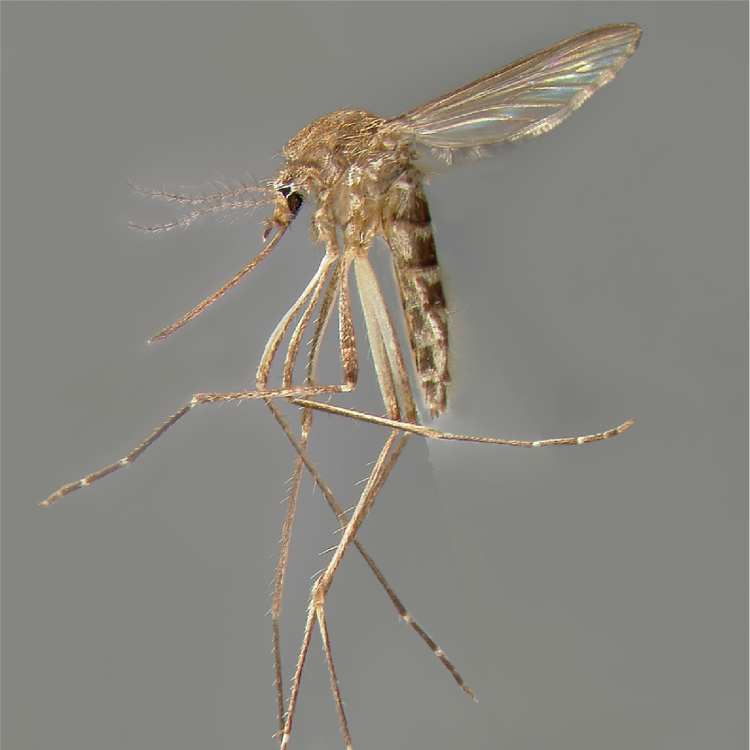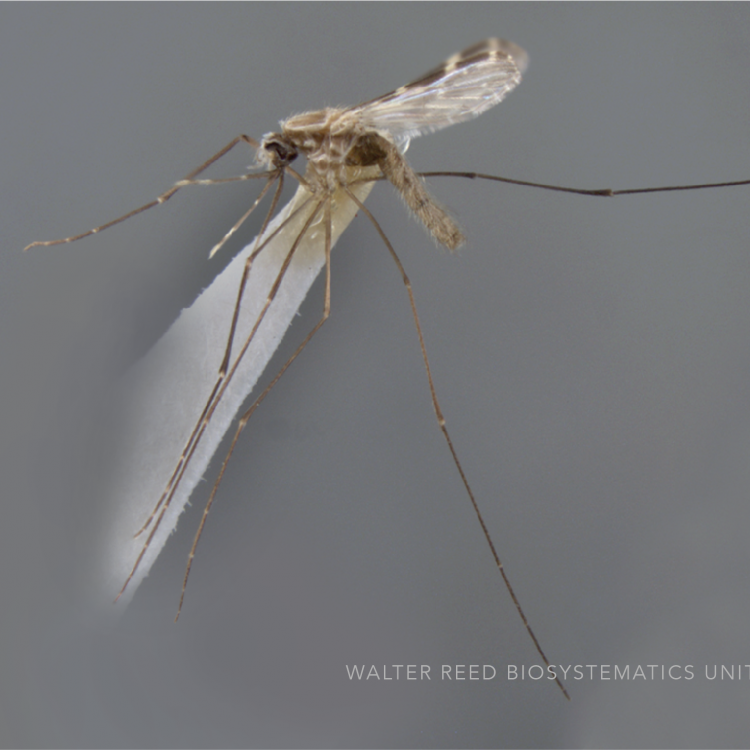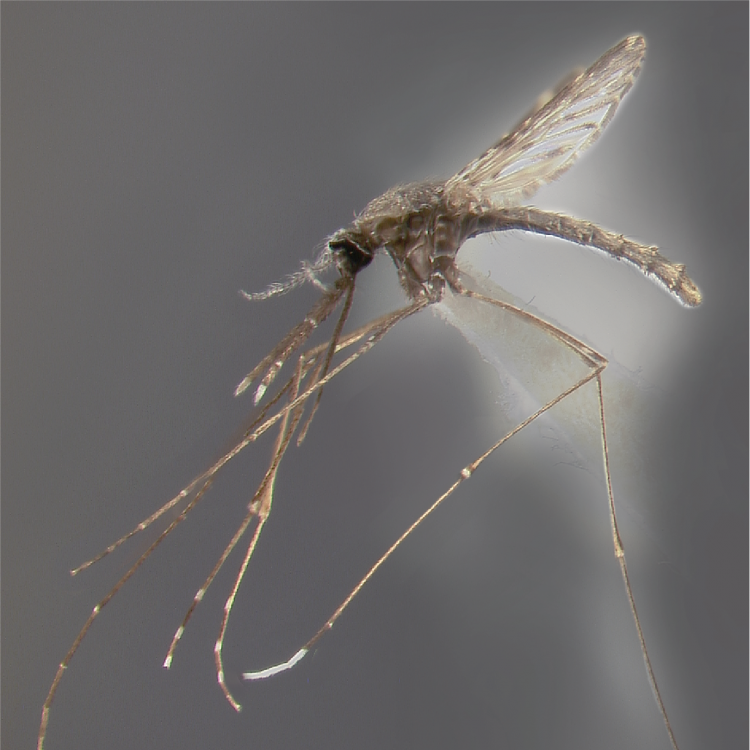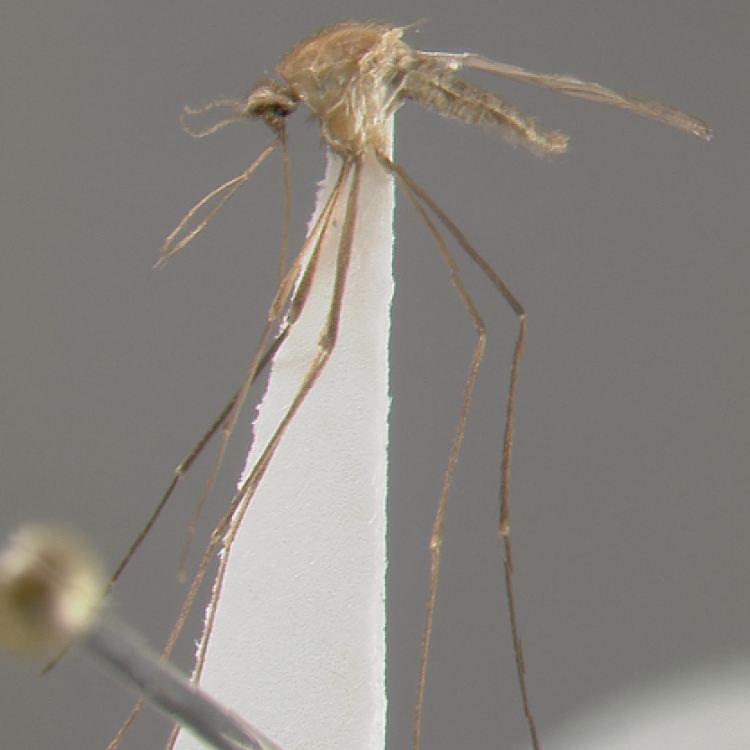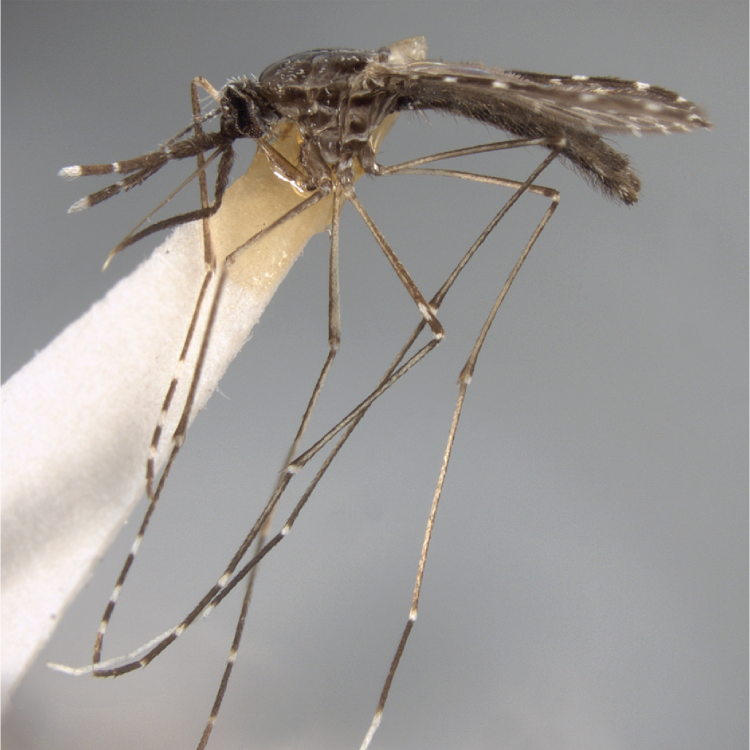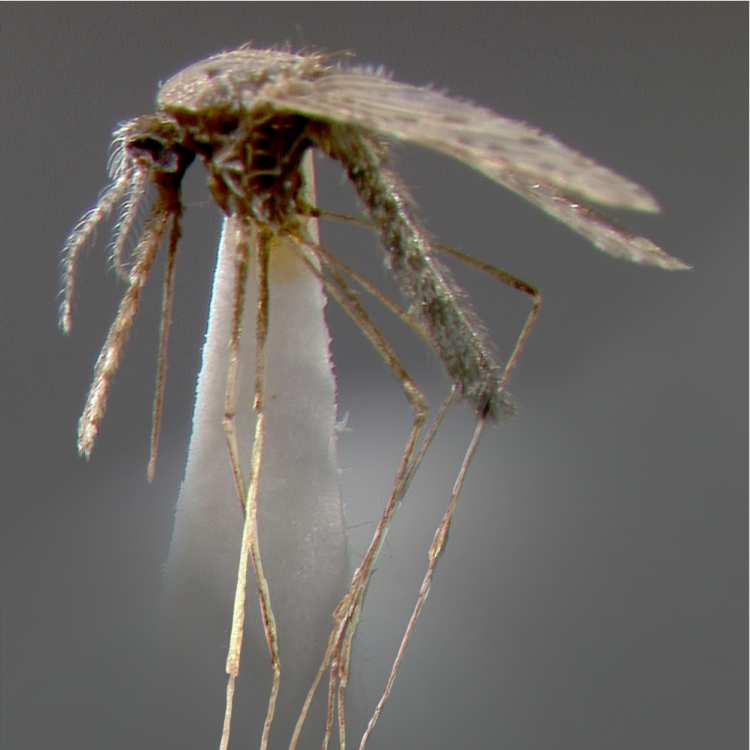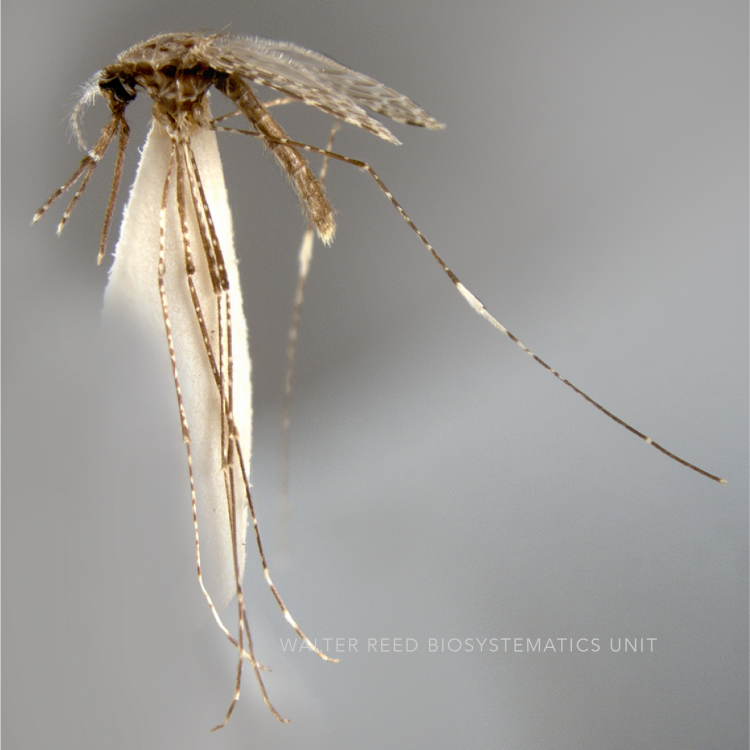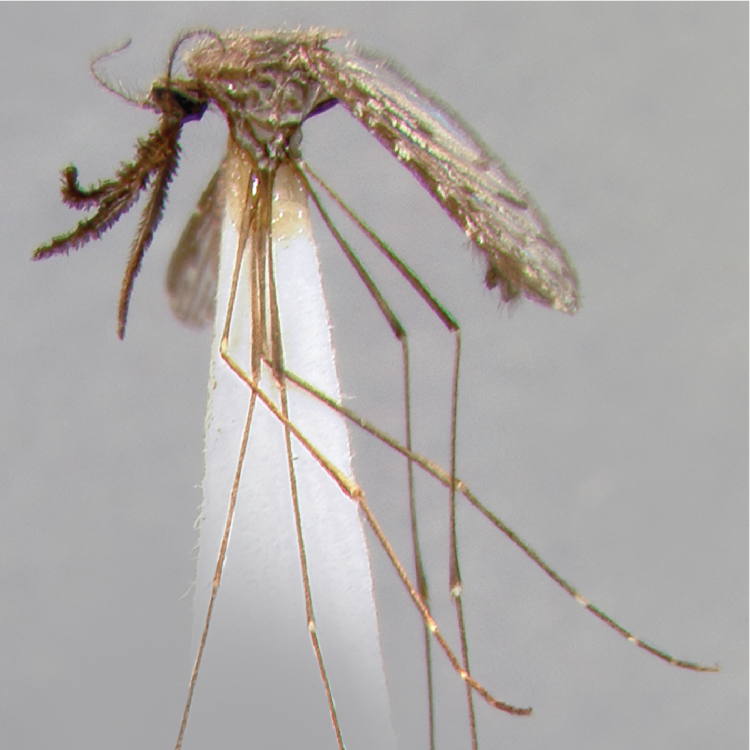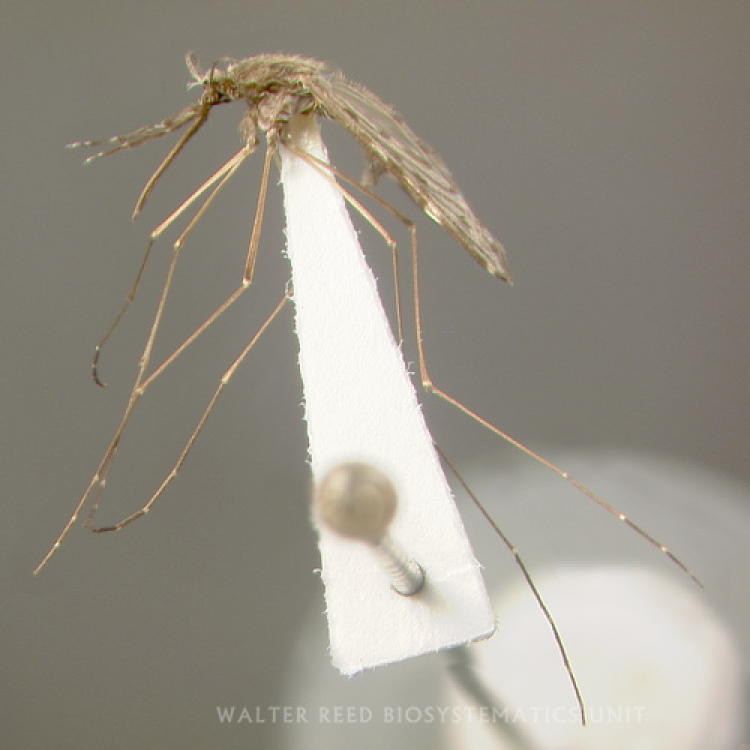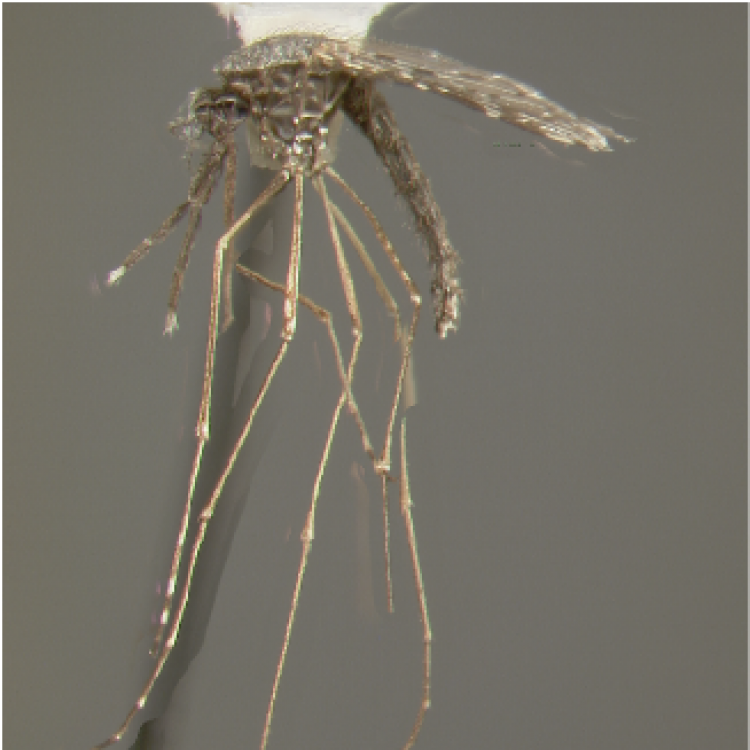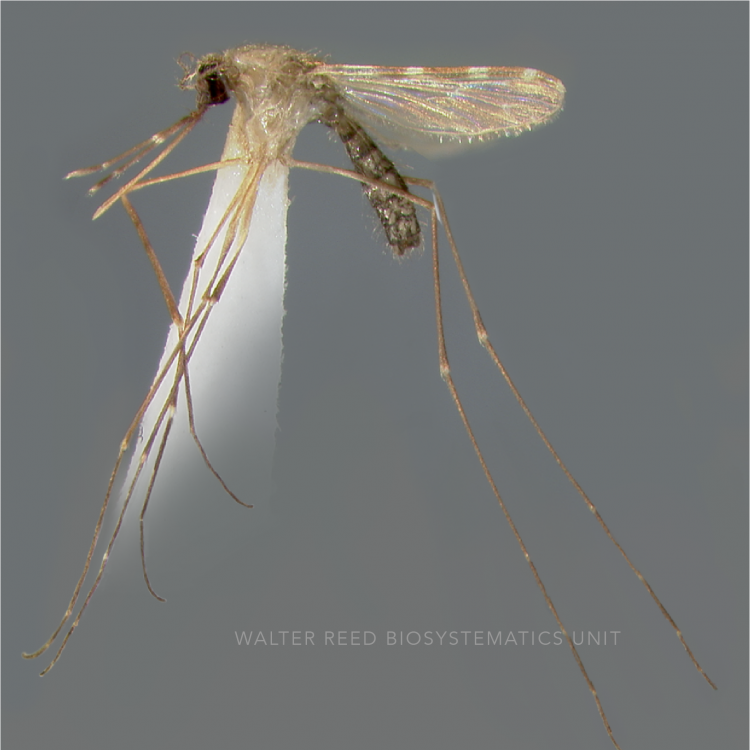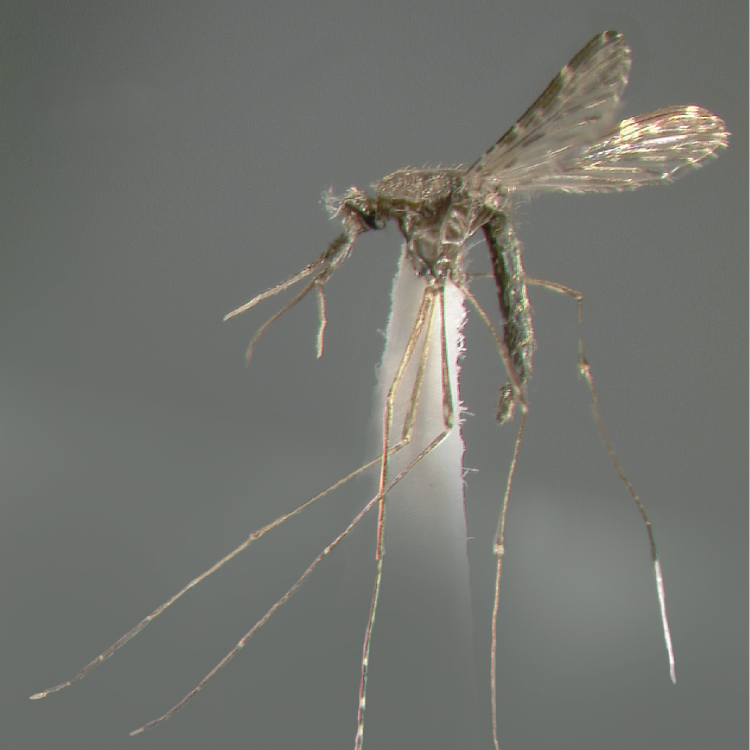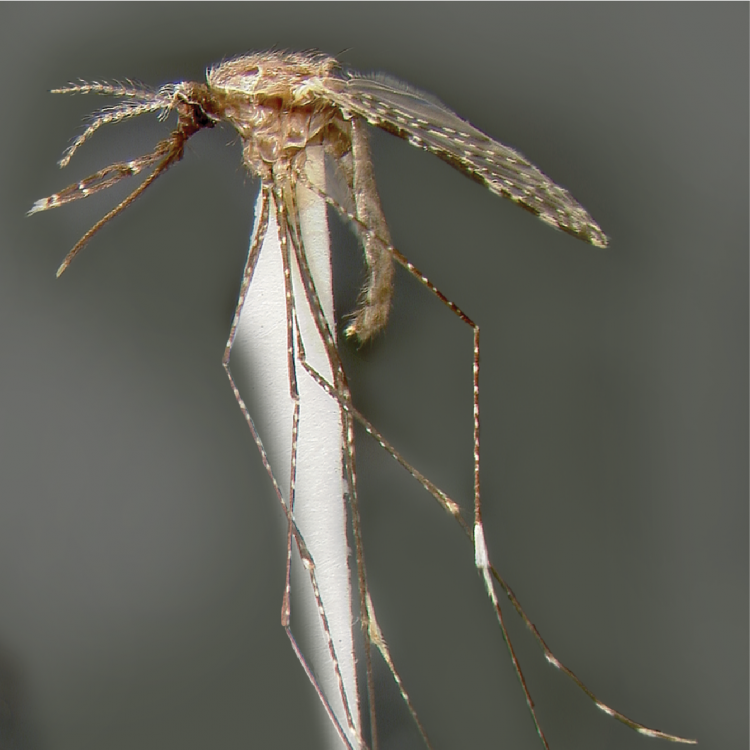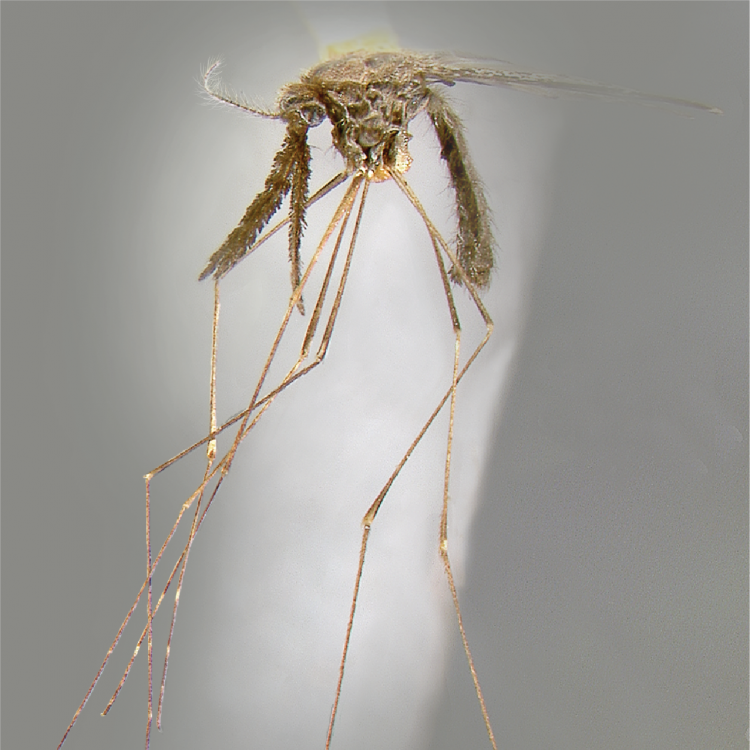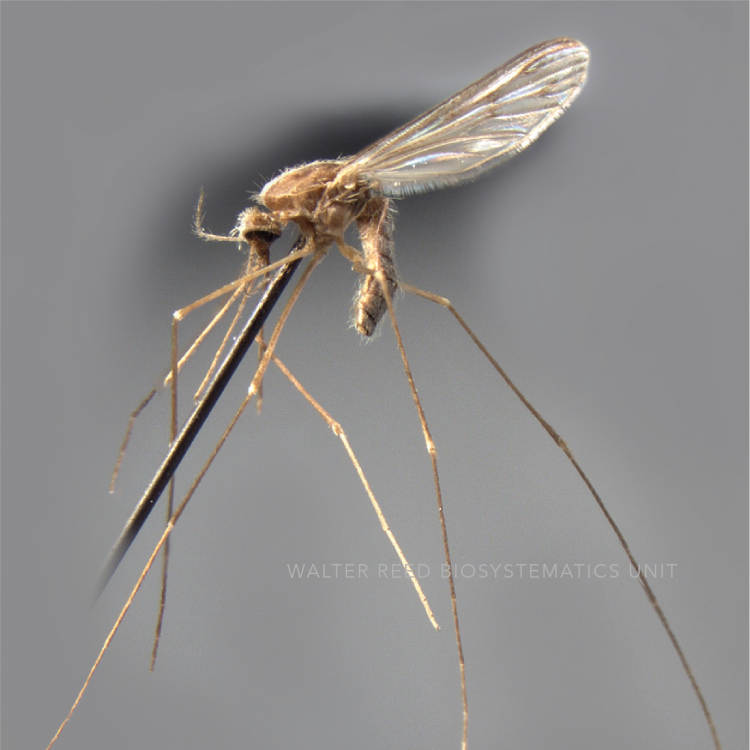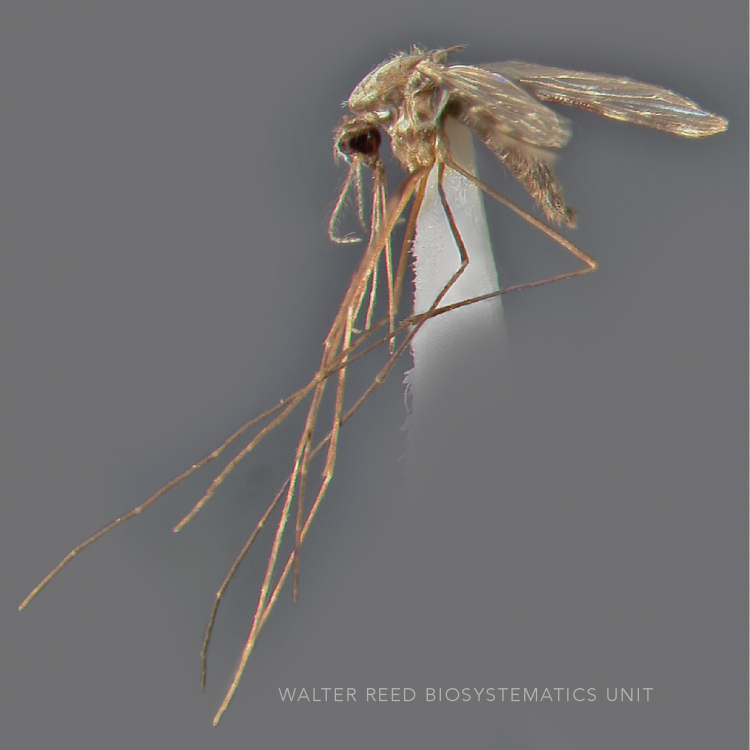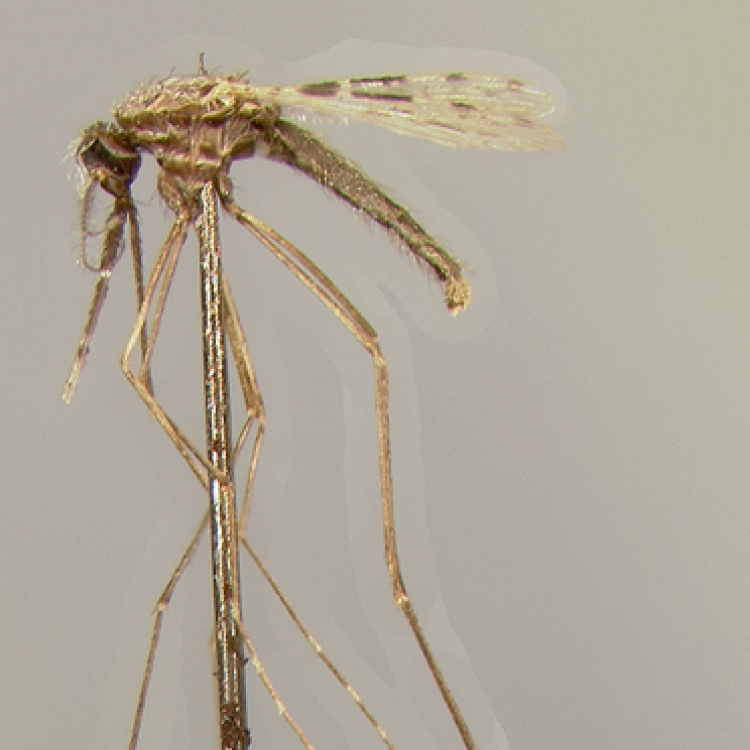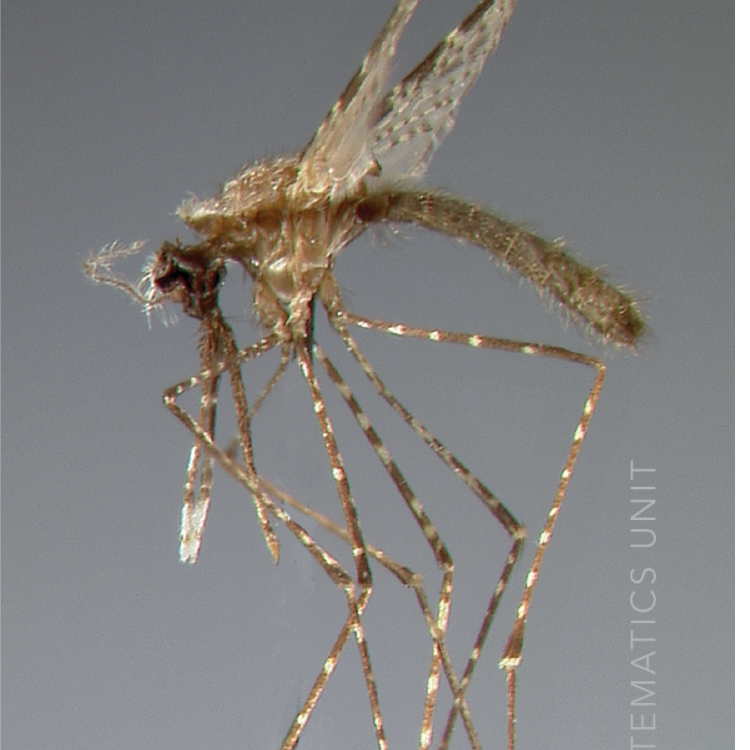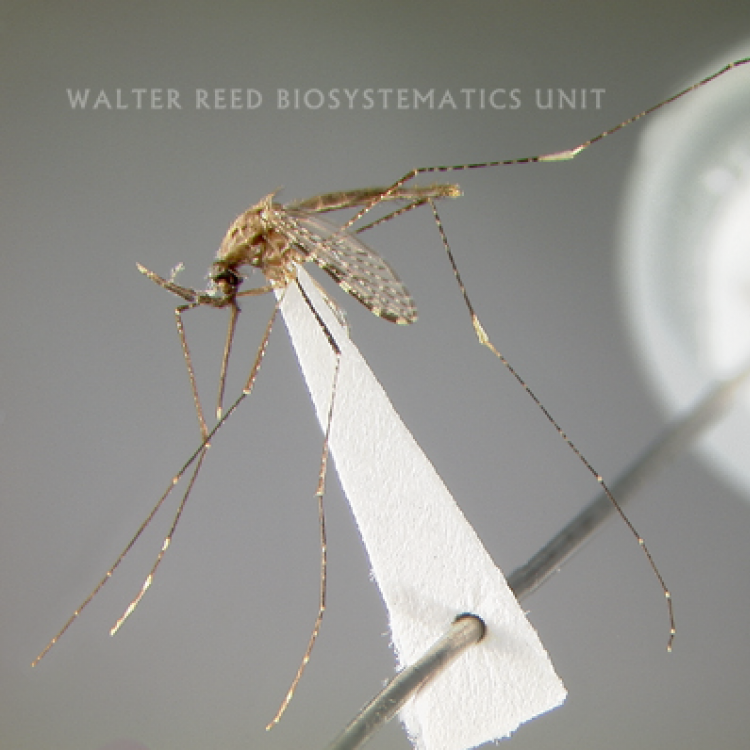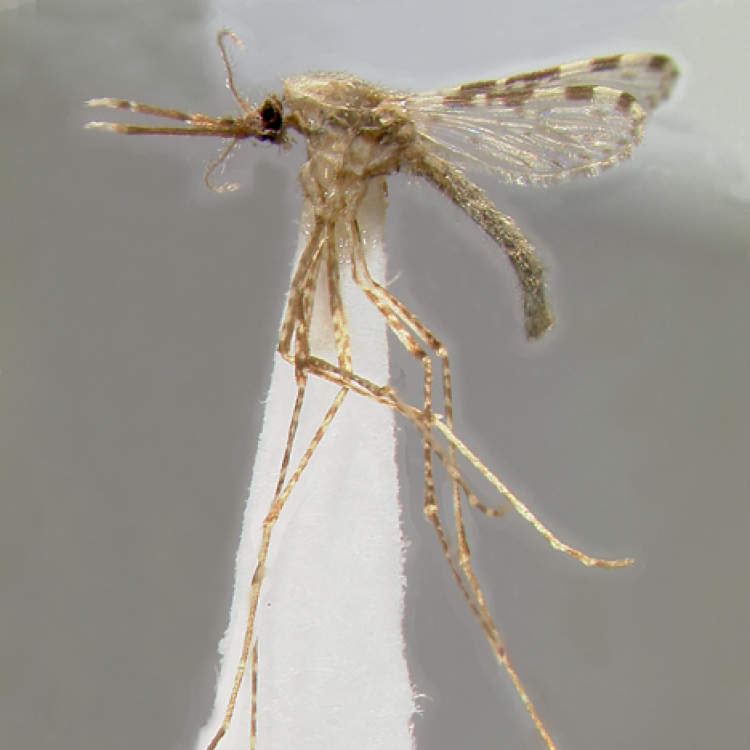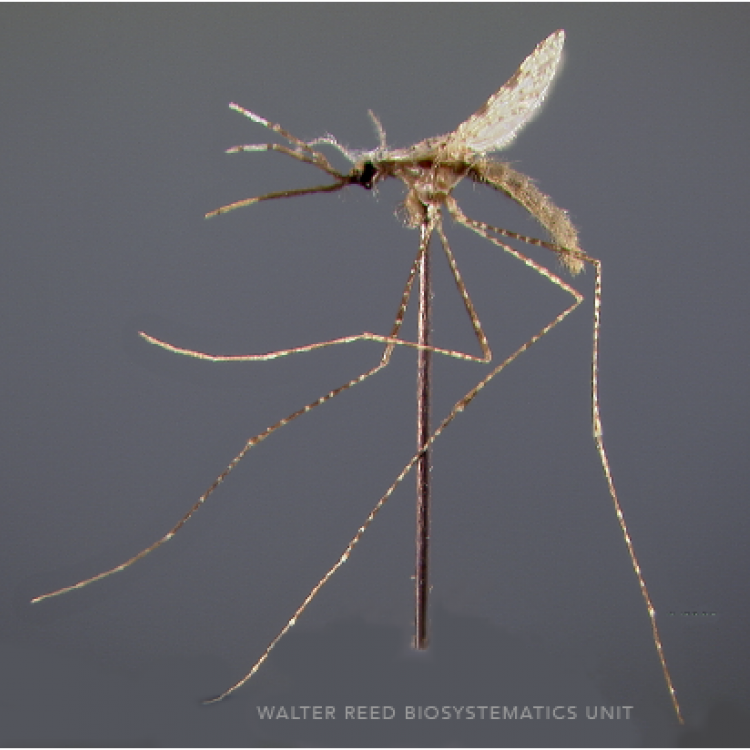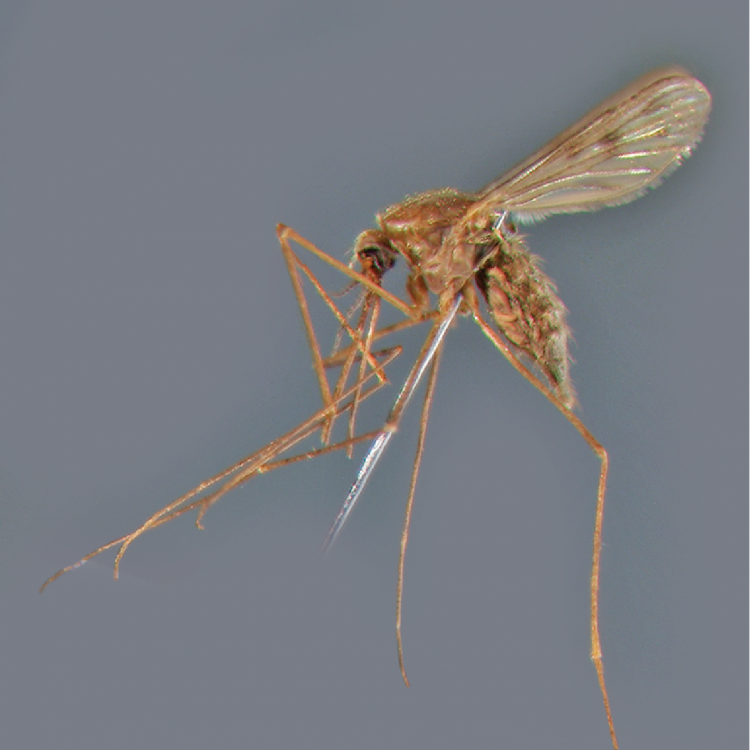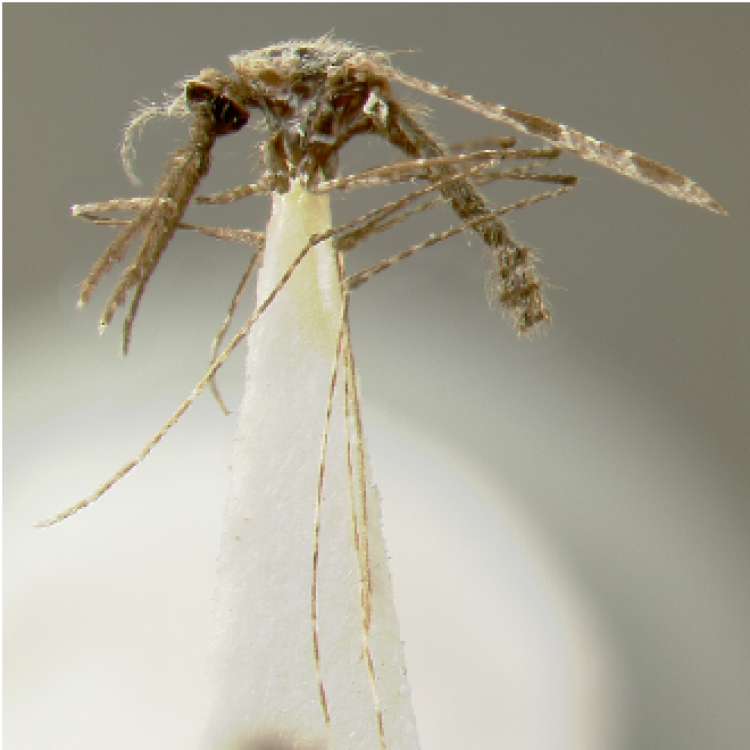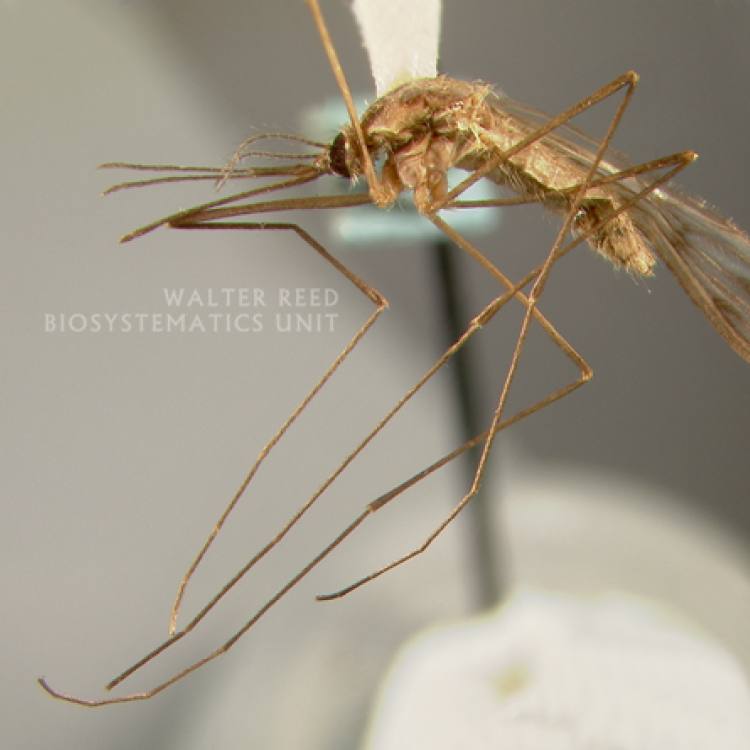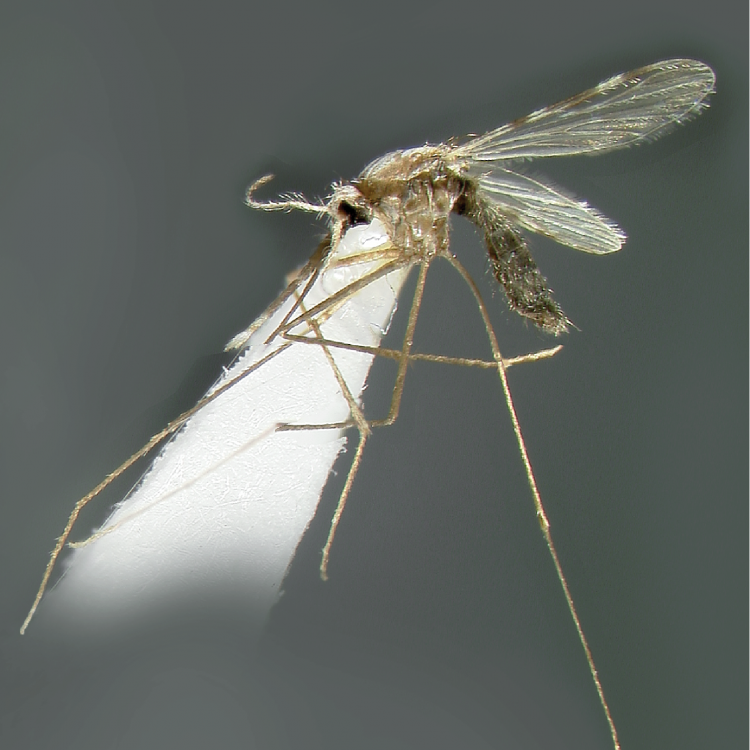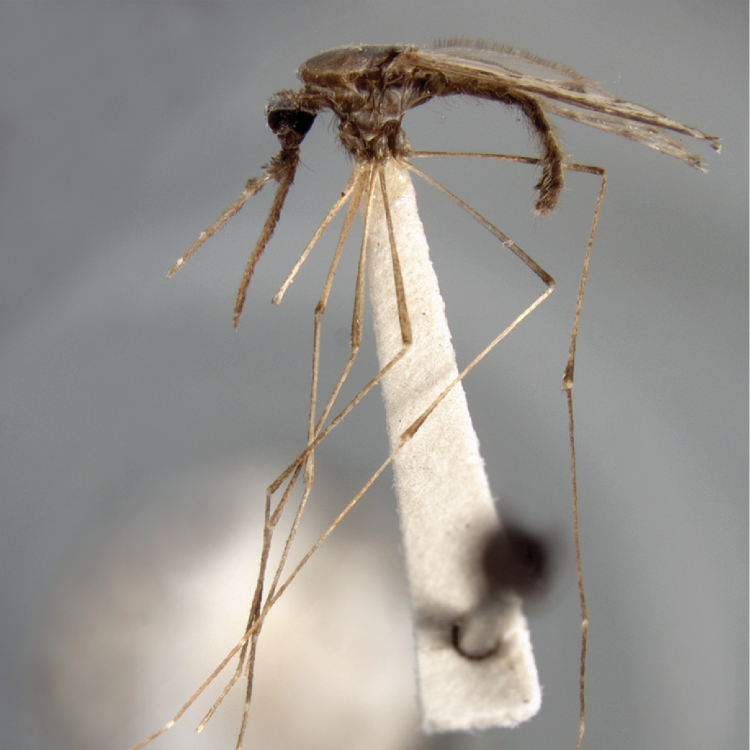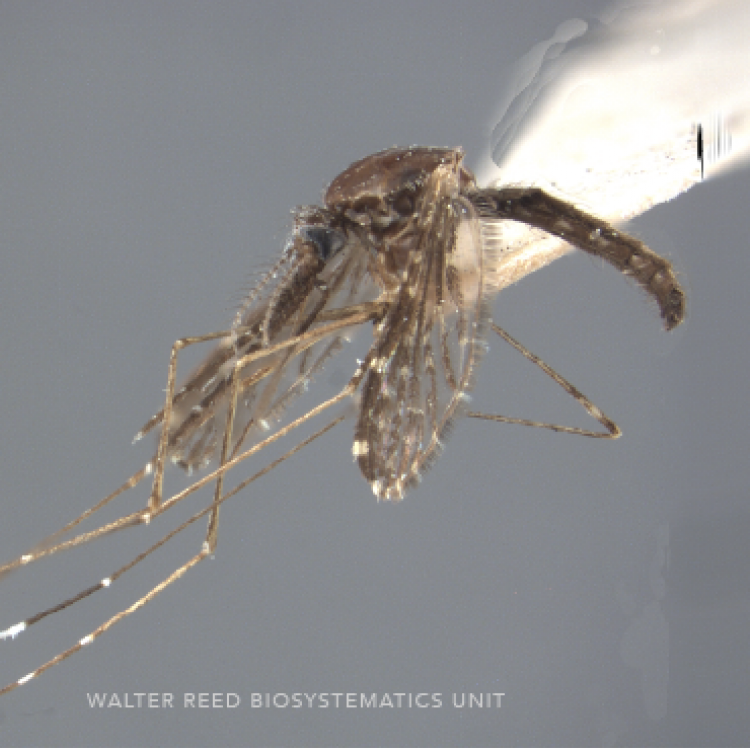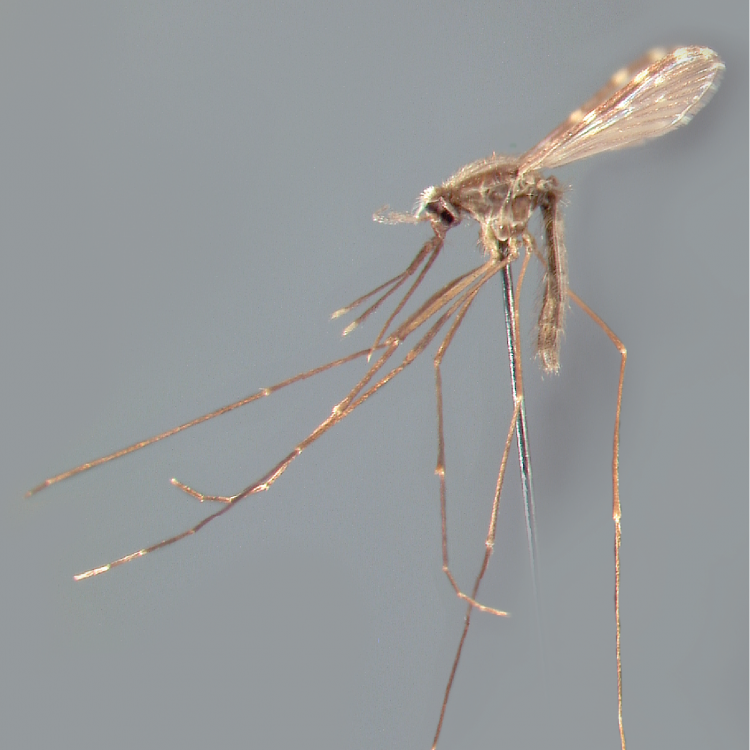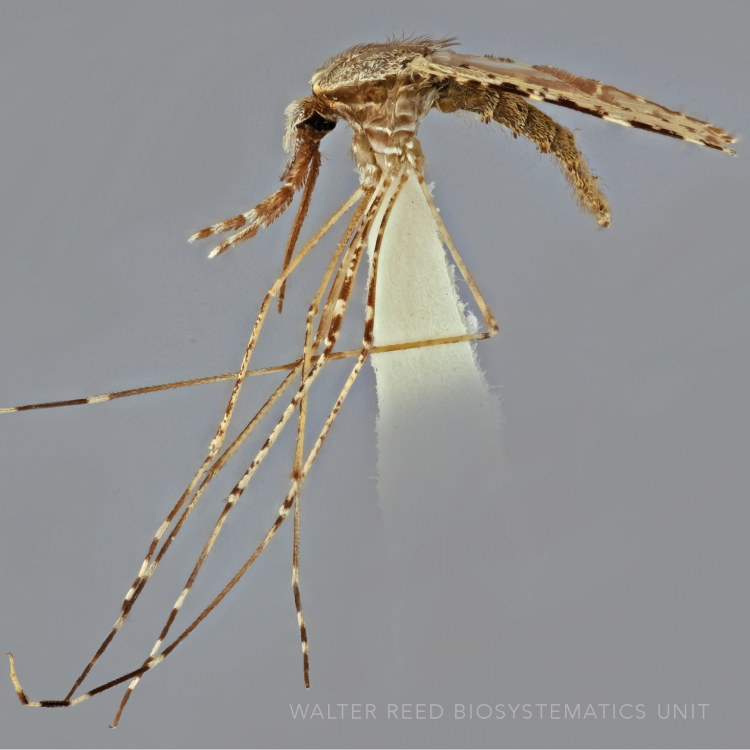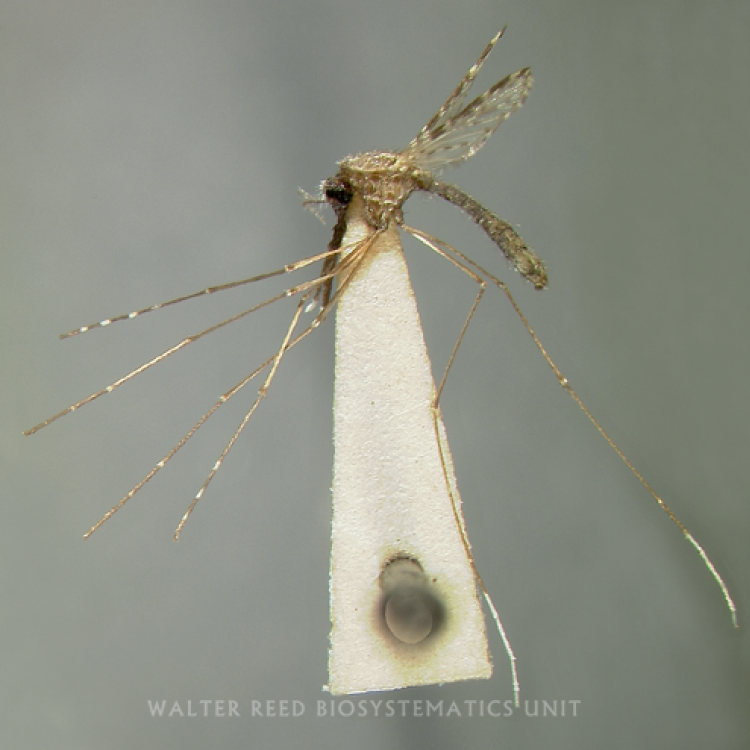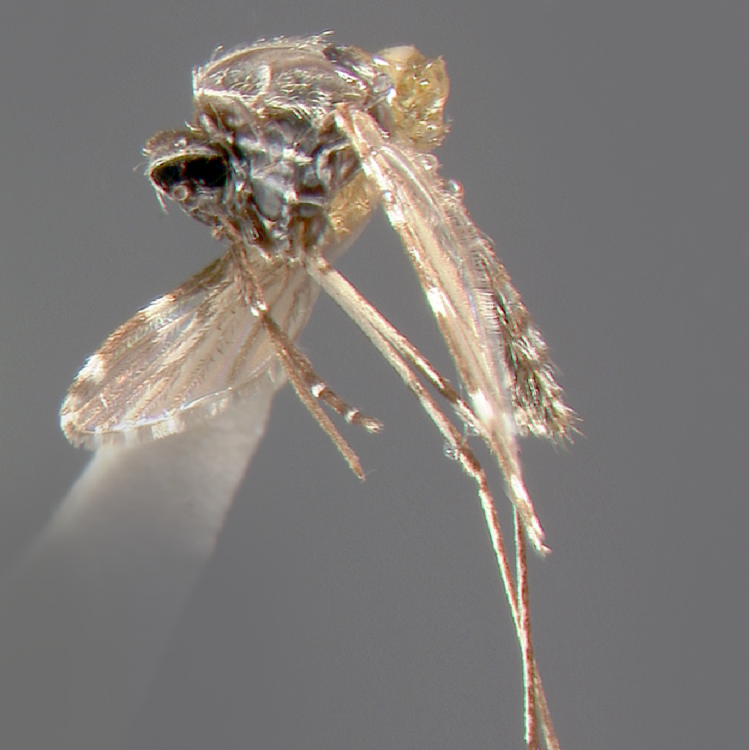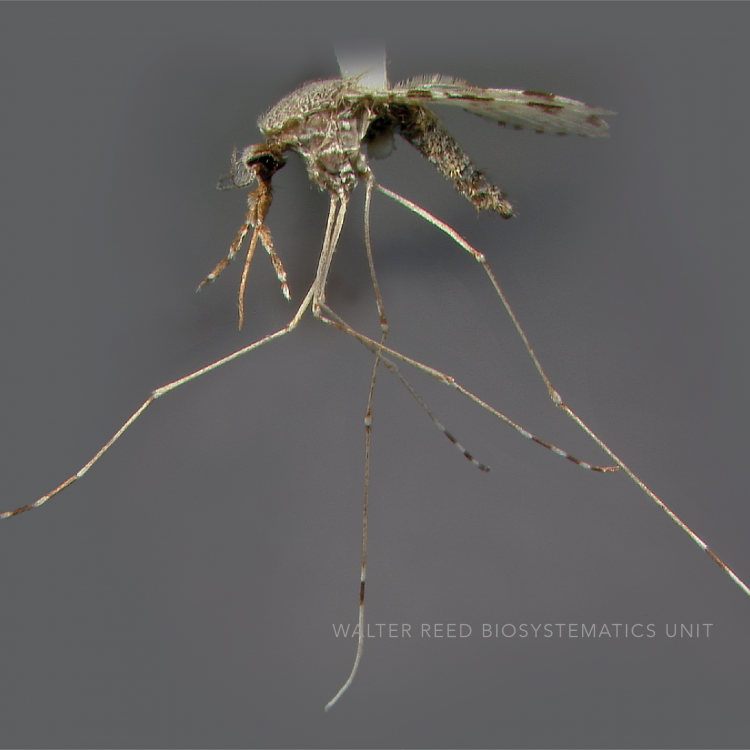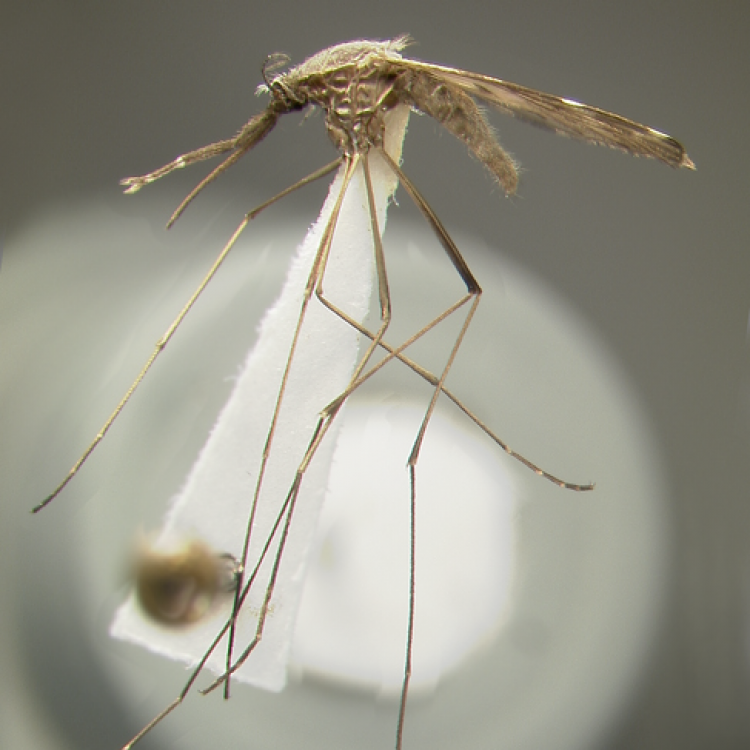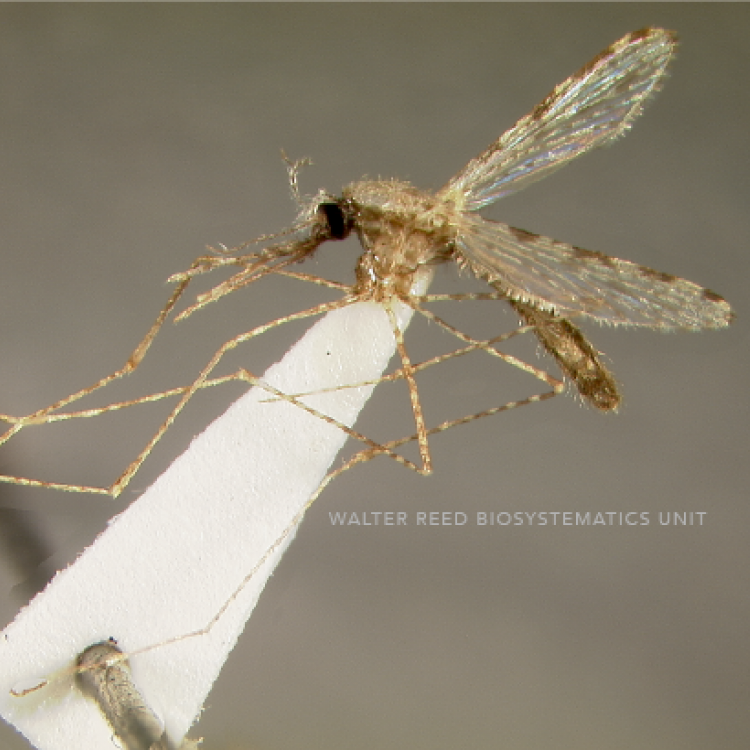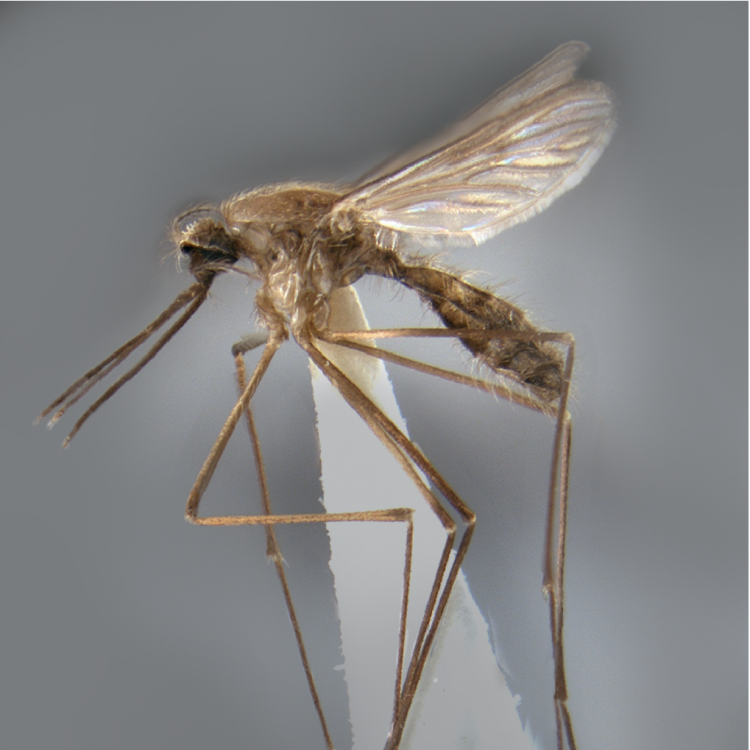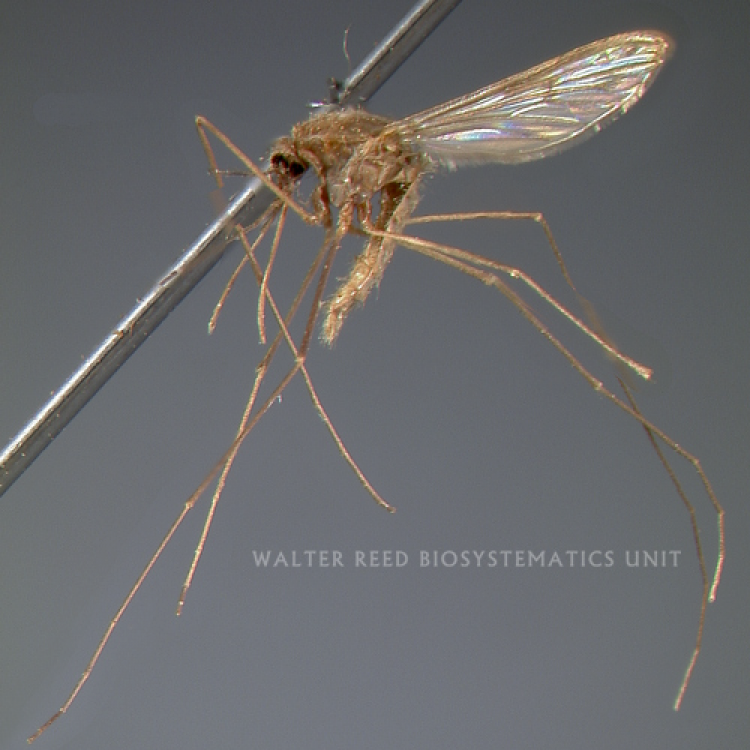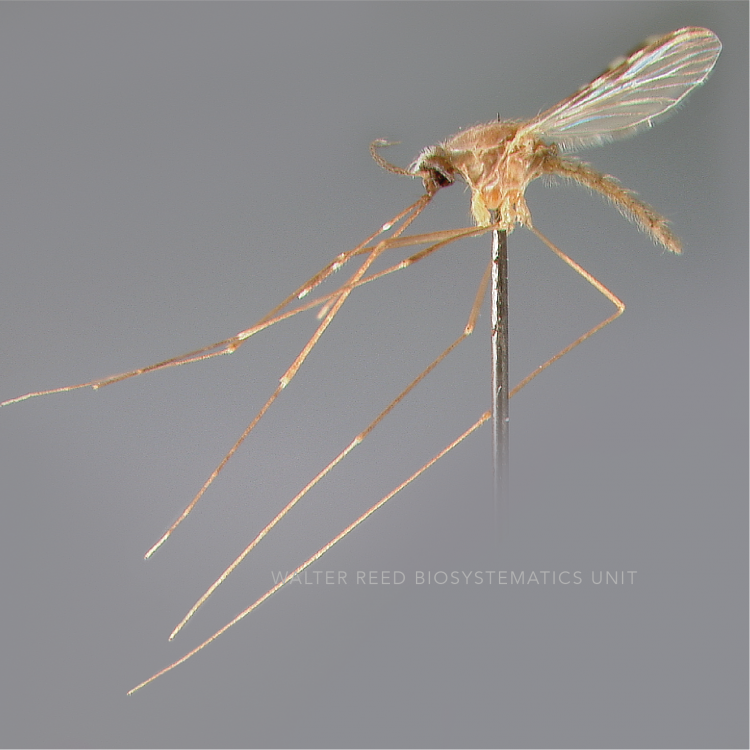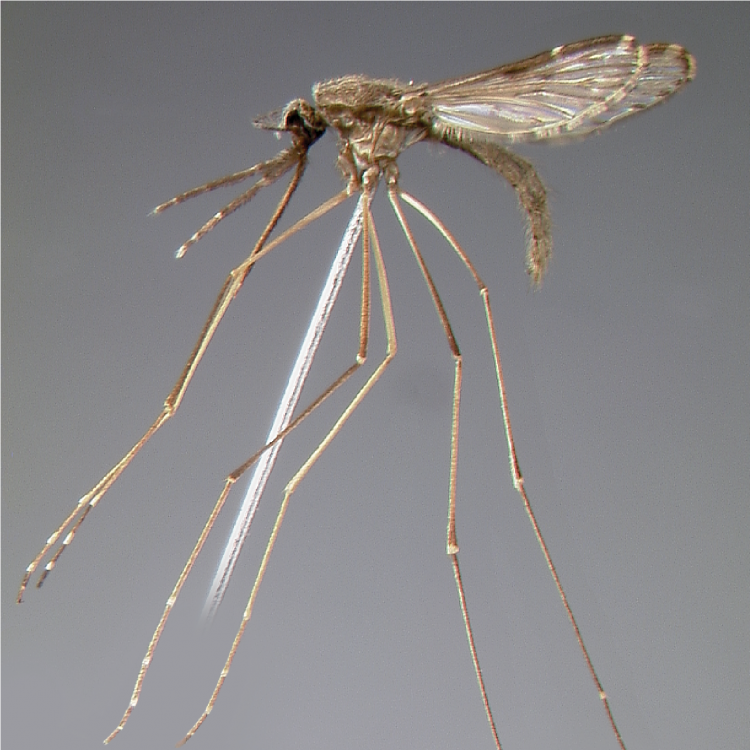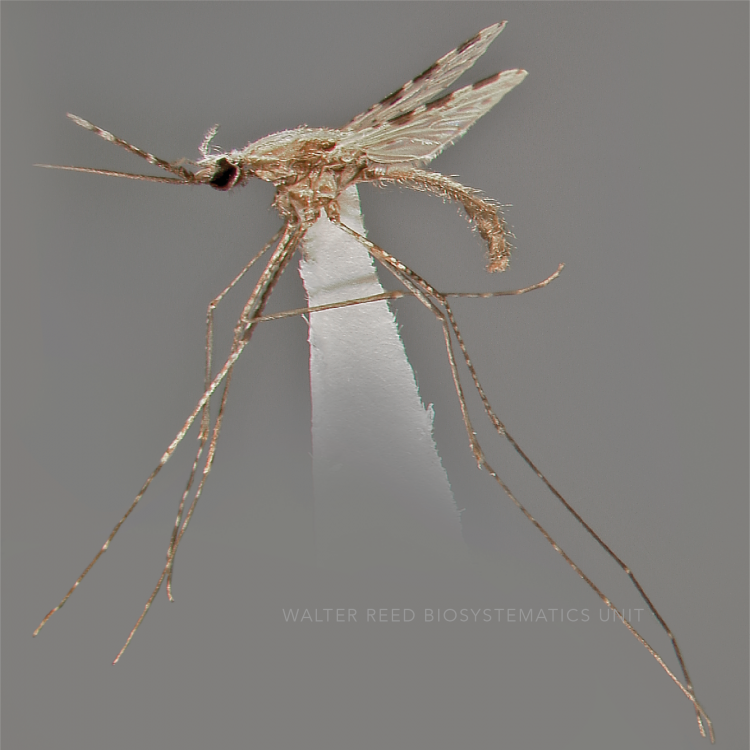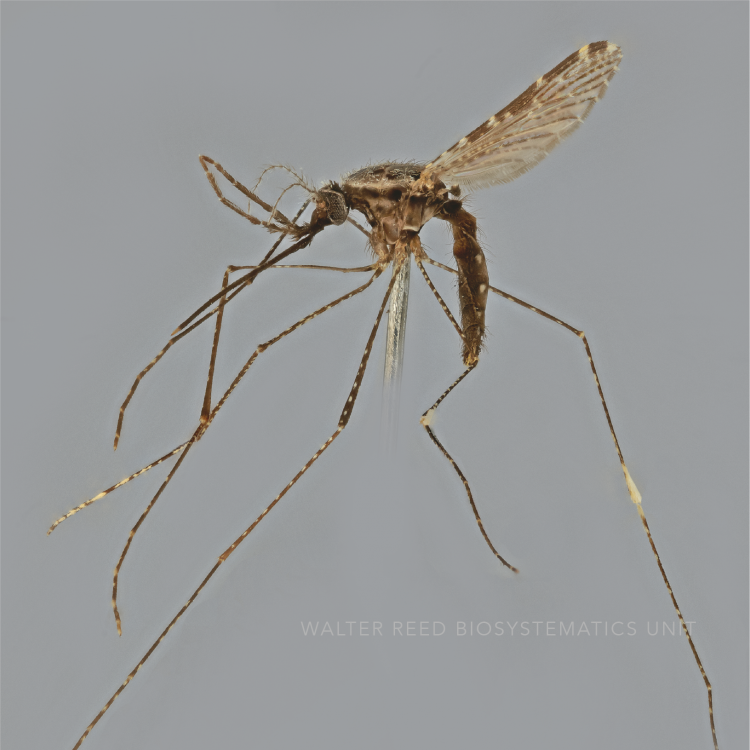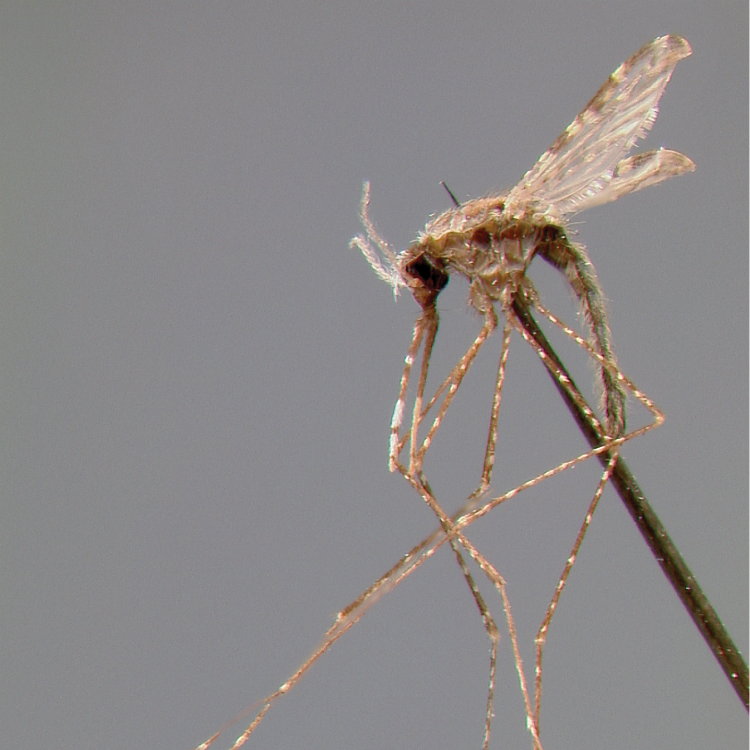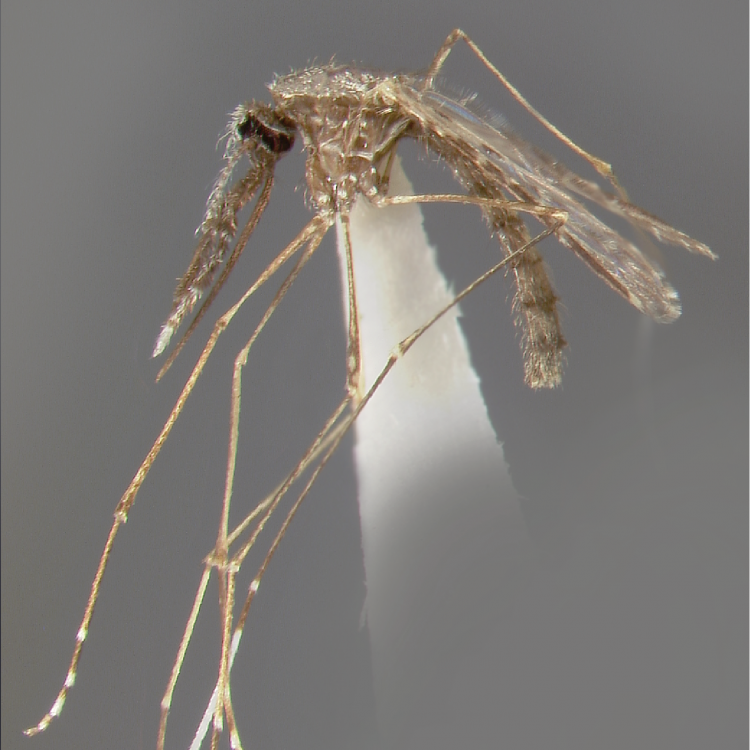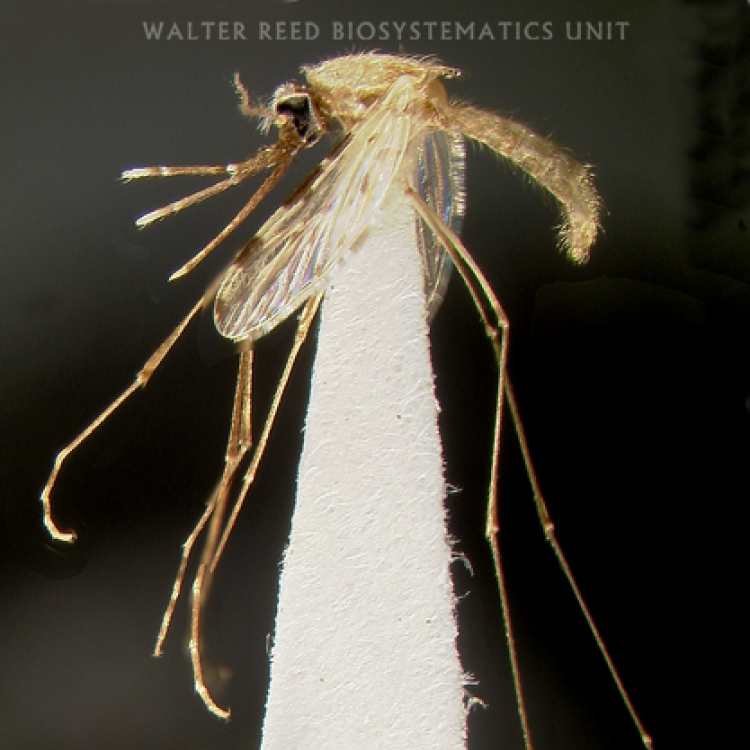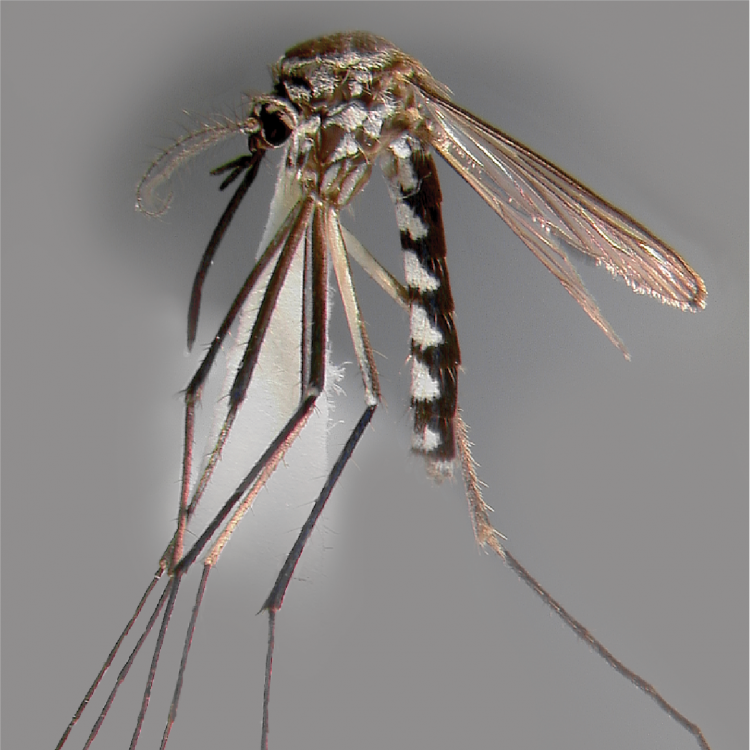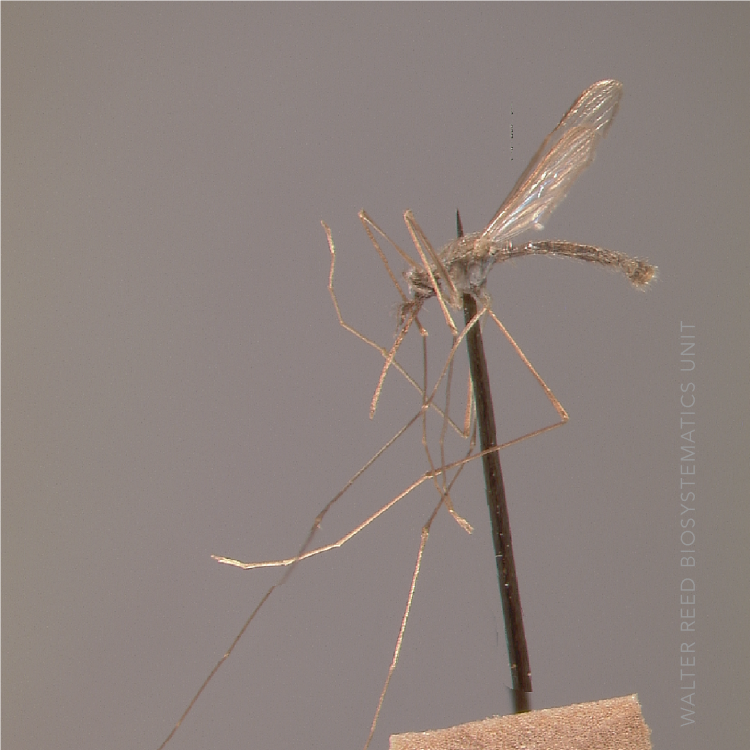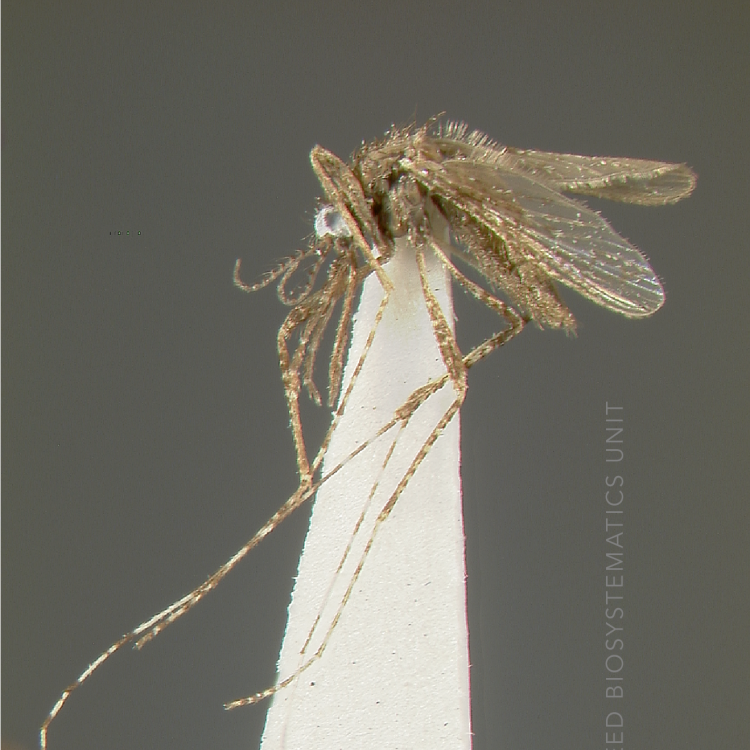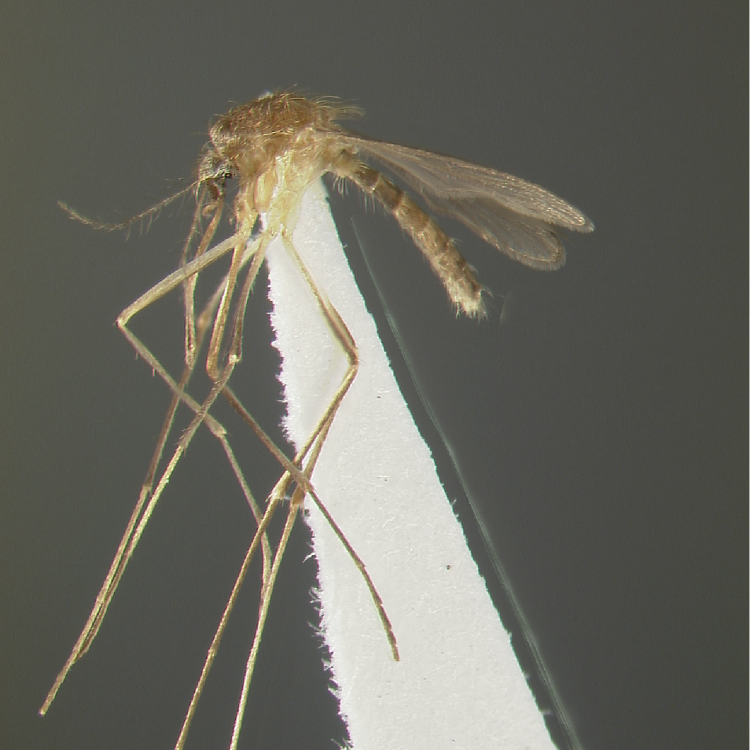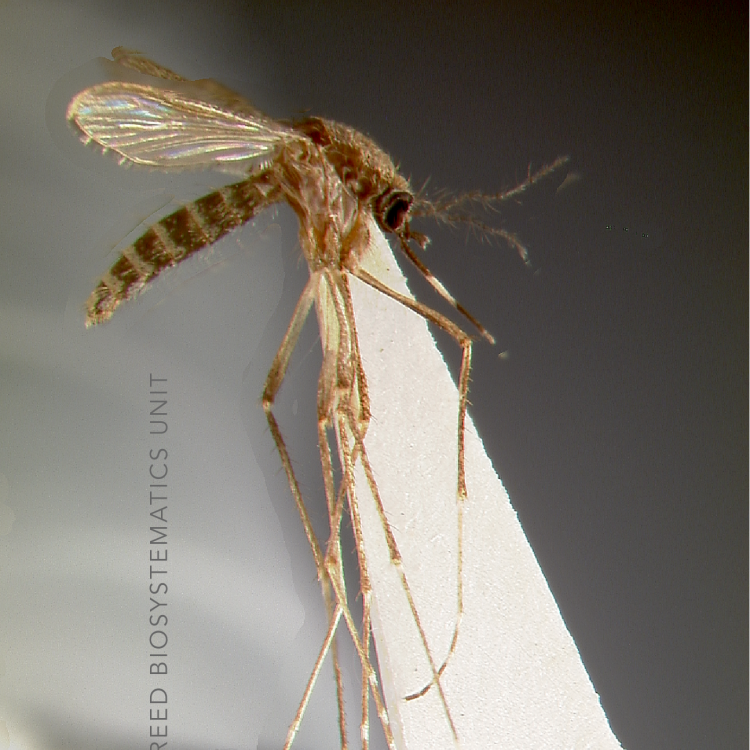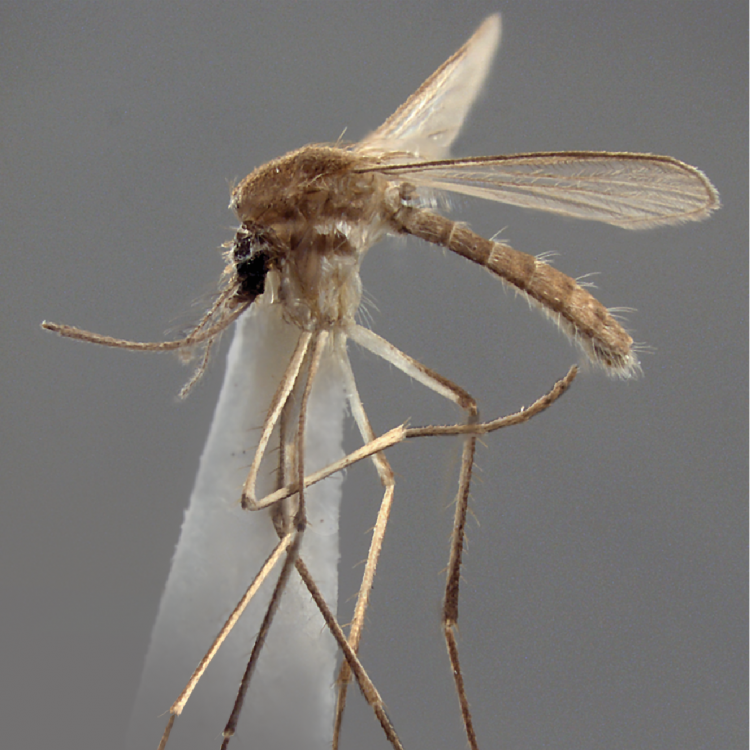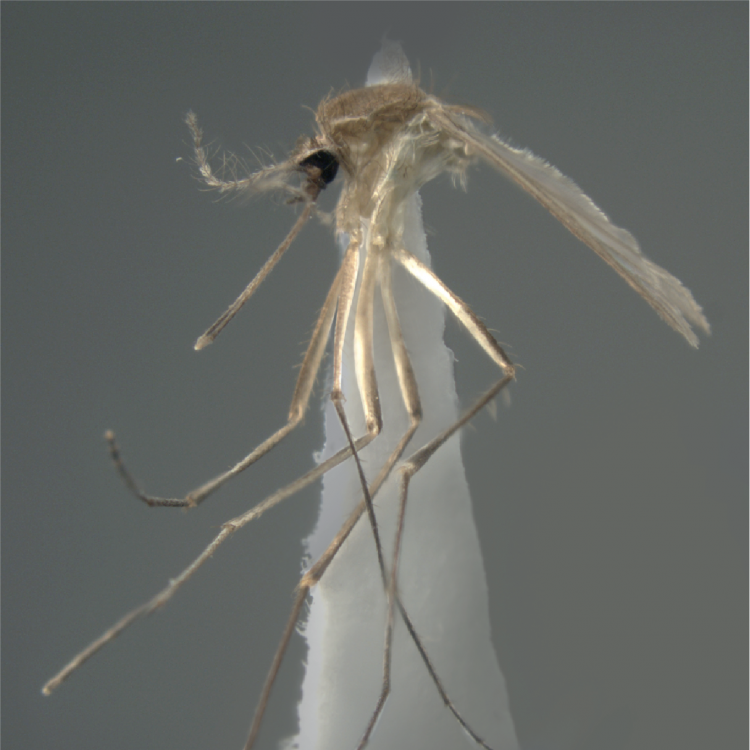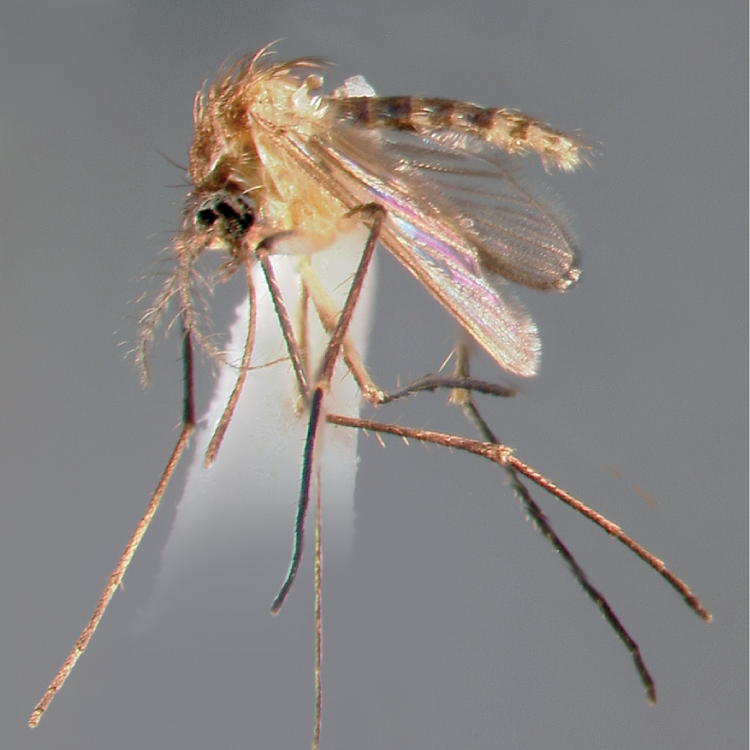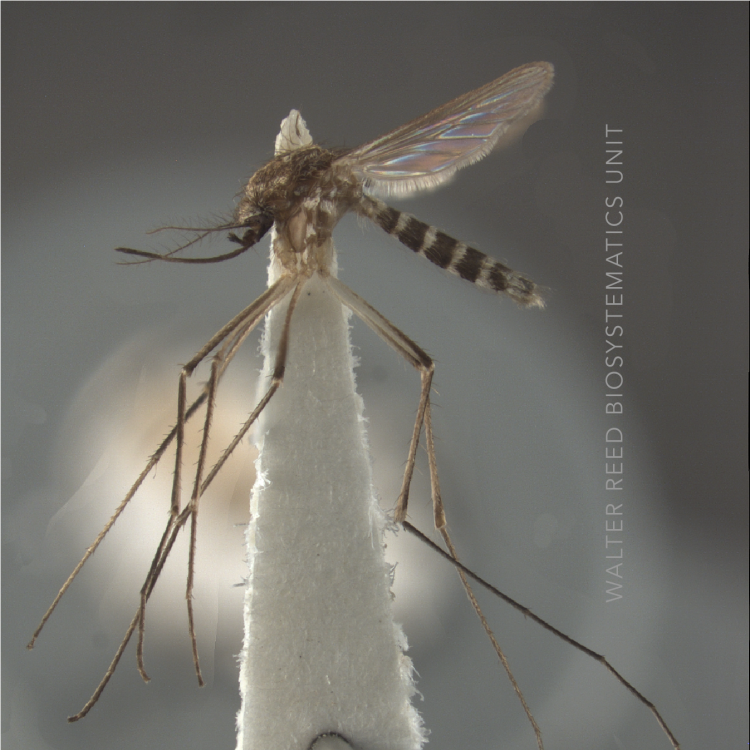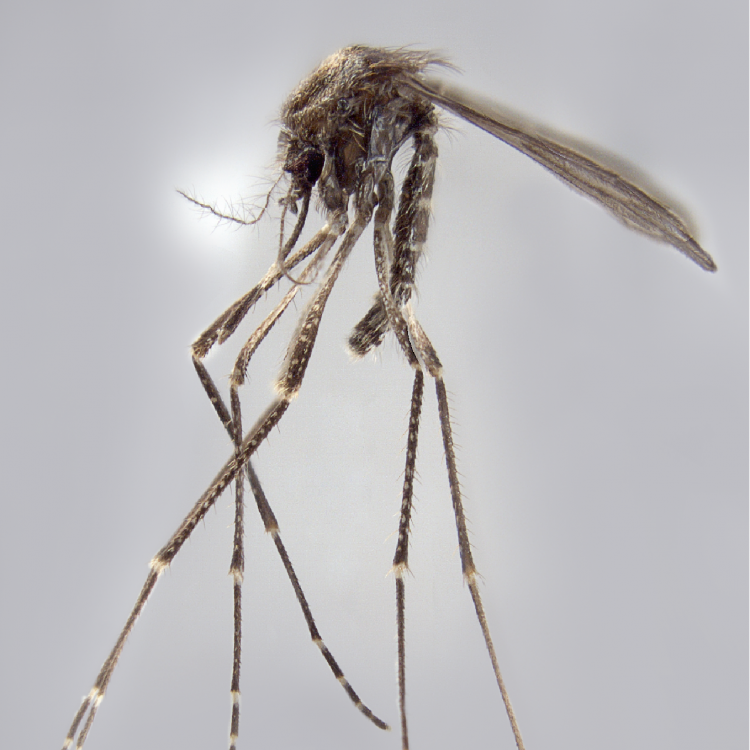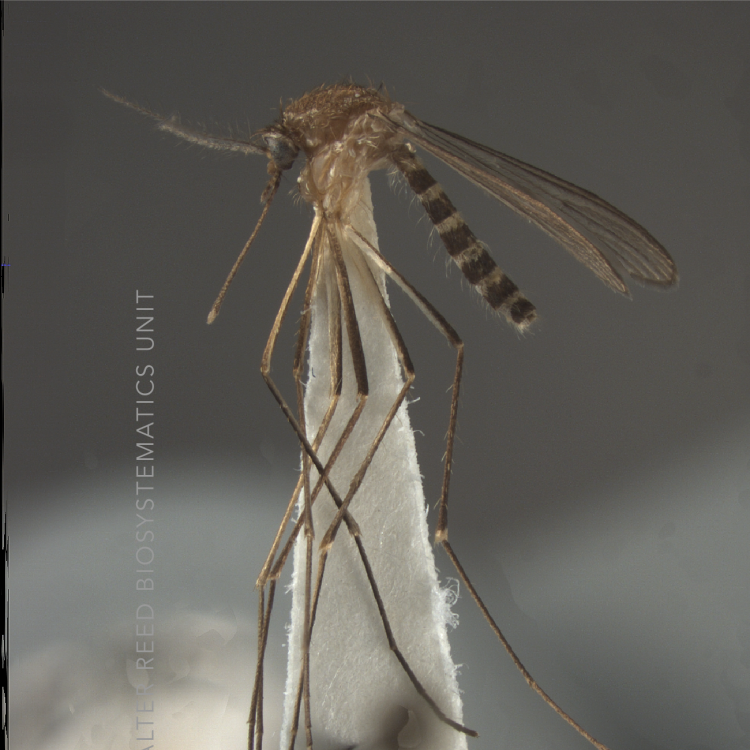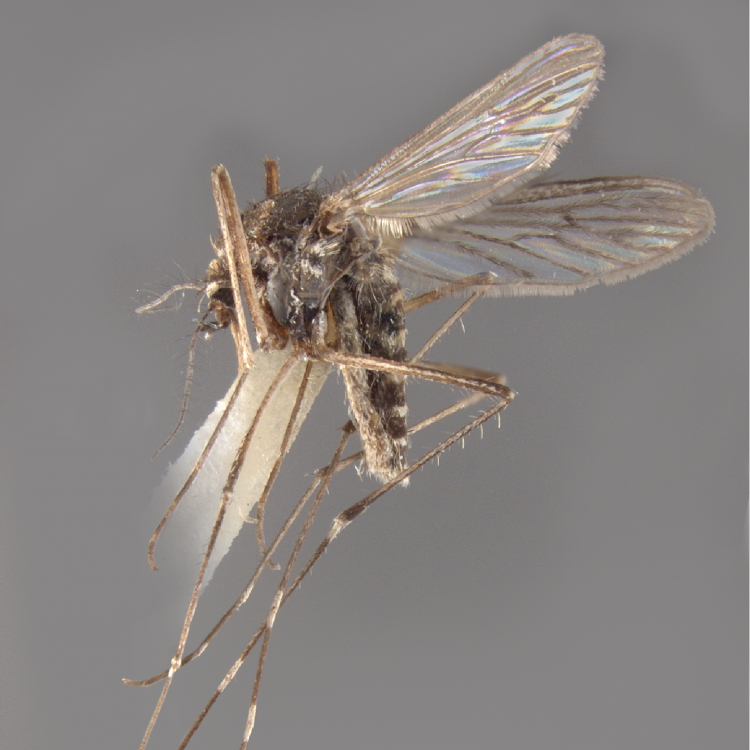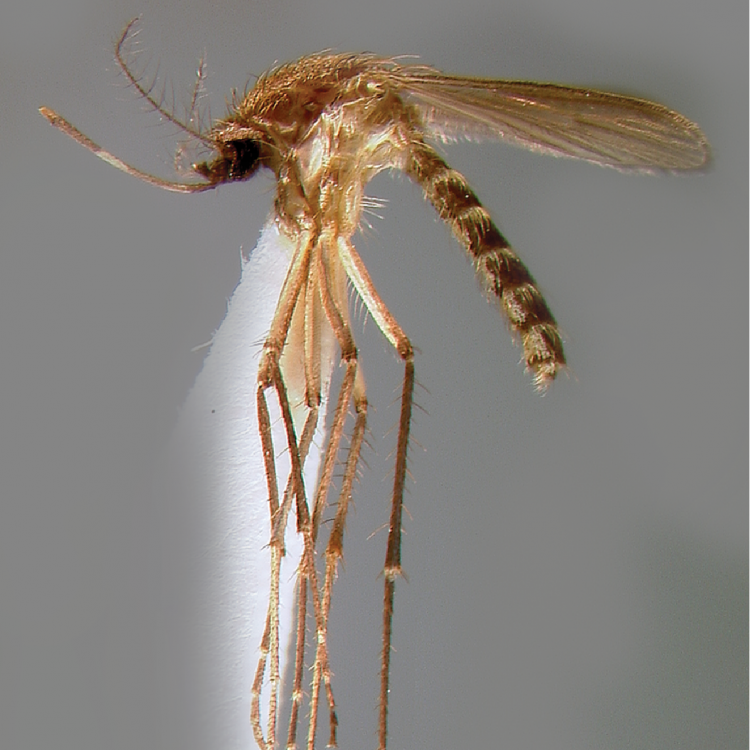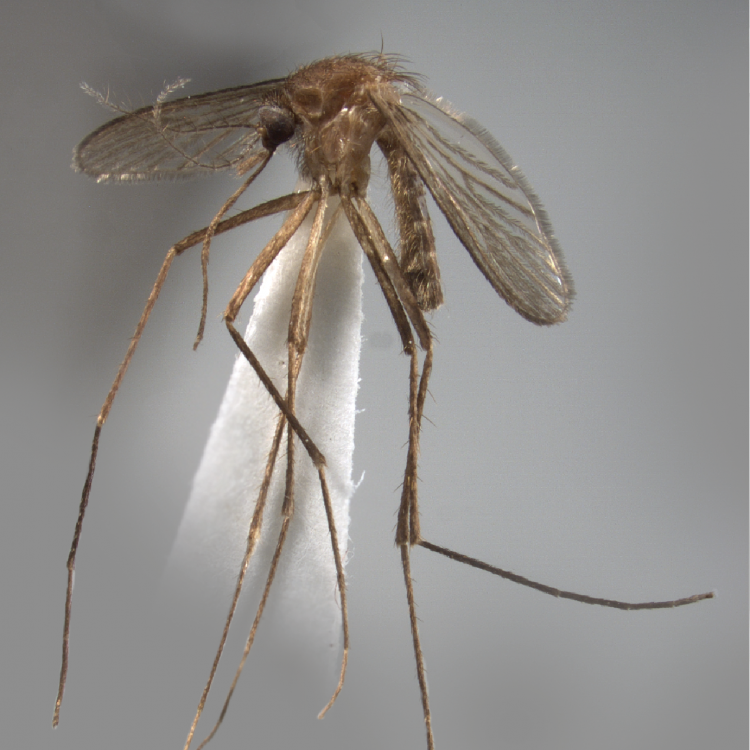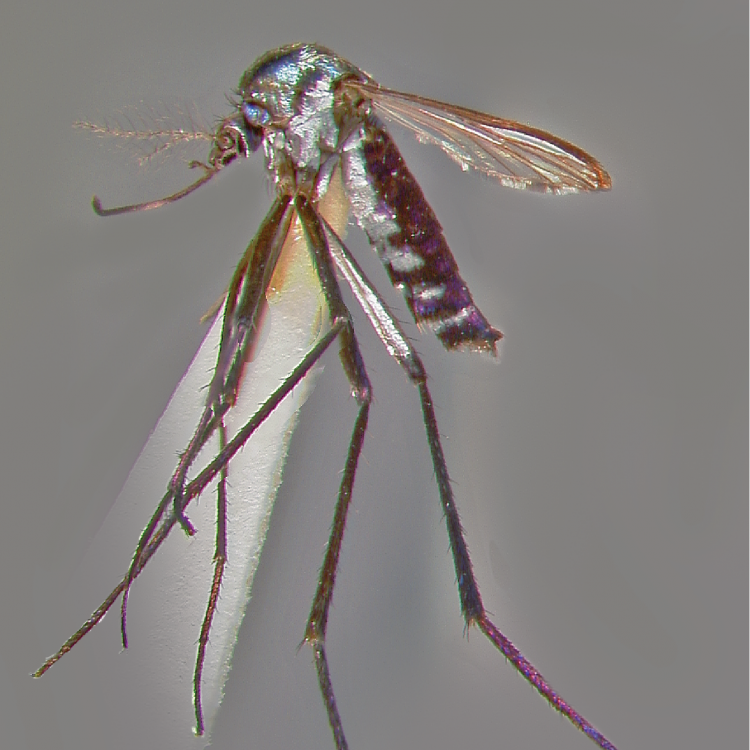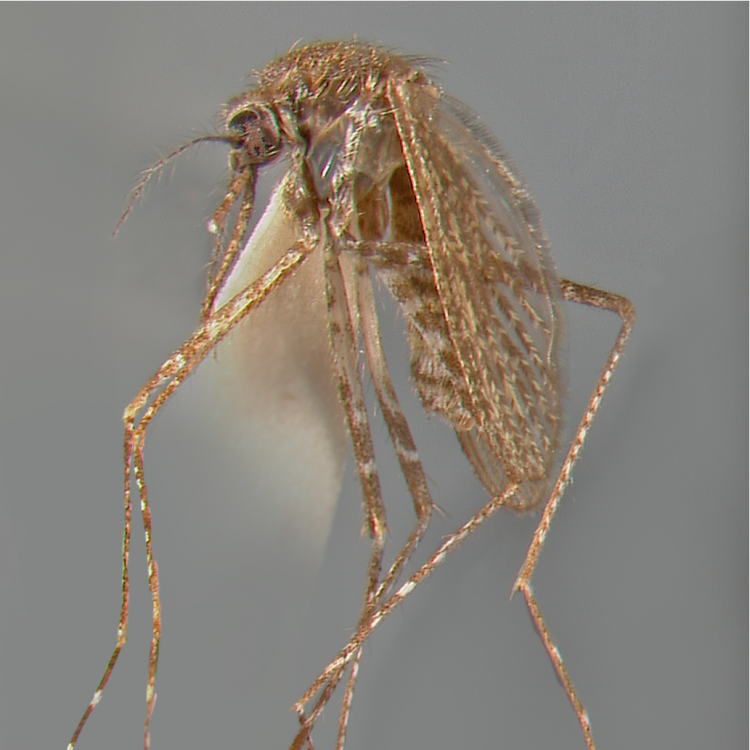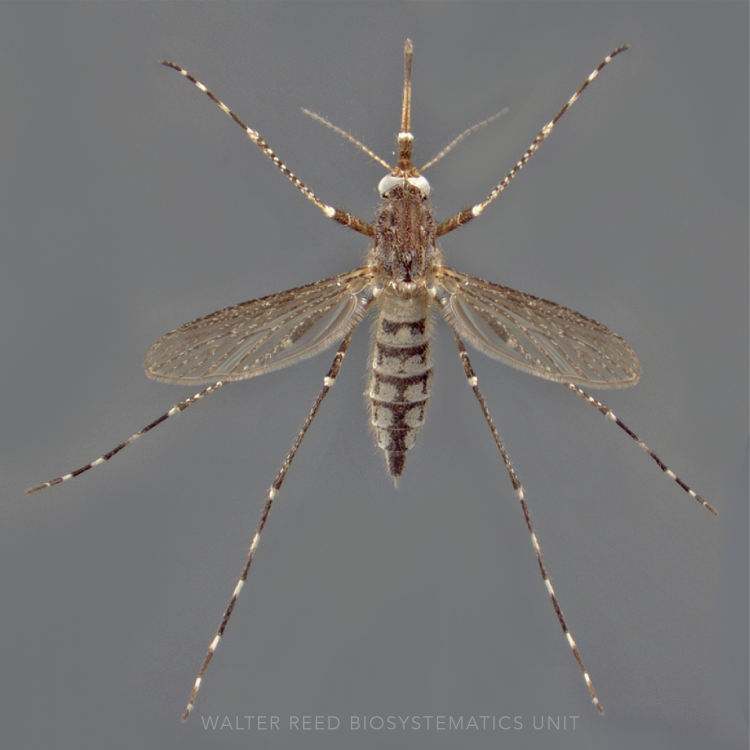NEOTROPICAL REGION
Etymology: mesosome [aedeagus] with teeth (Gr, L)
Haemagogus mesodentatus is a highly competent vector of yellow fever, and it is held responsible for the catastrophic collapse of the Classic lowland Mayan civilization of the Peten Region of Guatemala. It is a beautiful mosquito with blue, green, copper and bronze iridescent scales on its head, scutum, and along the leading edges of its wings, contrasting with its dense silver pleura and violet sheened legs.
Type locality: San Jose, Costa Rica
Type depository: Linnaean Society of London, London, England, United Kingdom (LU)
DIAGNOSTIC CHARACTERS (Click photos to view; mouse over and click large photo to zoom in.)
ADULT (illustrated): Thorax: Scutum with contrasting silver scales in antealar area; postpronotum densely scaled; scutal scales vary from coppery to gold to metallic green and blue; mesopostnotum bare; pleuron with single broad vertical band of silver scales; wing vein R2+3 usually greater than 0.55 of R2. Legs: Ta-II2,3 with white or gray scales on outer surface.
LARVA (not illustrated): Abdominal segments: Seta 12-I present. Terminal segments: Comb scales 4–20 in single row, not attached to sclerotized plate; seta 4-X with 5 pairs of setae (rarely 6).
TAXONOMIC KEYS
None
Exemplar DNA sequences
Hg. mesodentatus rDNA ITS2: M95128
BIONOMICS
Immatures
Immatures of Hg. mesodentatus are found in tree holes and in cut bamboo. Haemagogus mesodentatus larvae are morphologically very similar to Hg. janthinomys Dyar, except that 4–20 comb scales attach directly to the eighth abdominal segment in a perfectly straight row, not on the comb plate as in Hg. janthinomys.
Adults
Like other Haemagogus mosquitoes, female Hg. mesodentatus are diurnal and seldom leave the forest. Females ferociously attack man in the forest, especially those involved in logging and agricultural practices.
DISTRIBUTION NOTES
Belize, Costa Rica, El Salvador, Guatemala, Mexico, Panama.
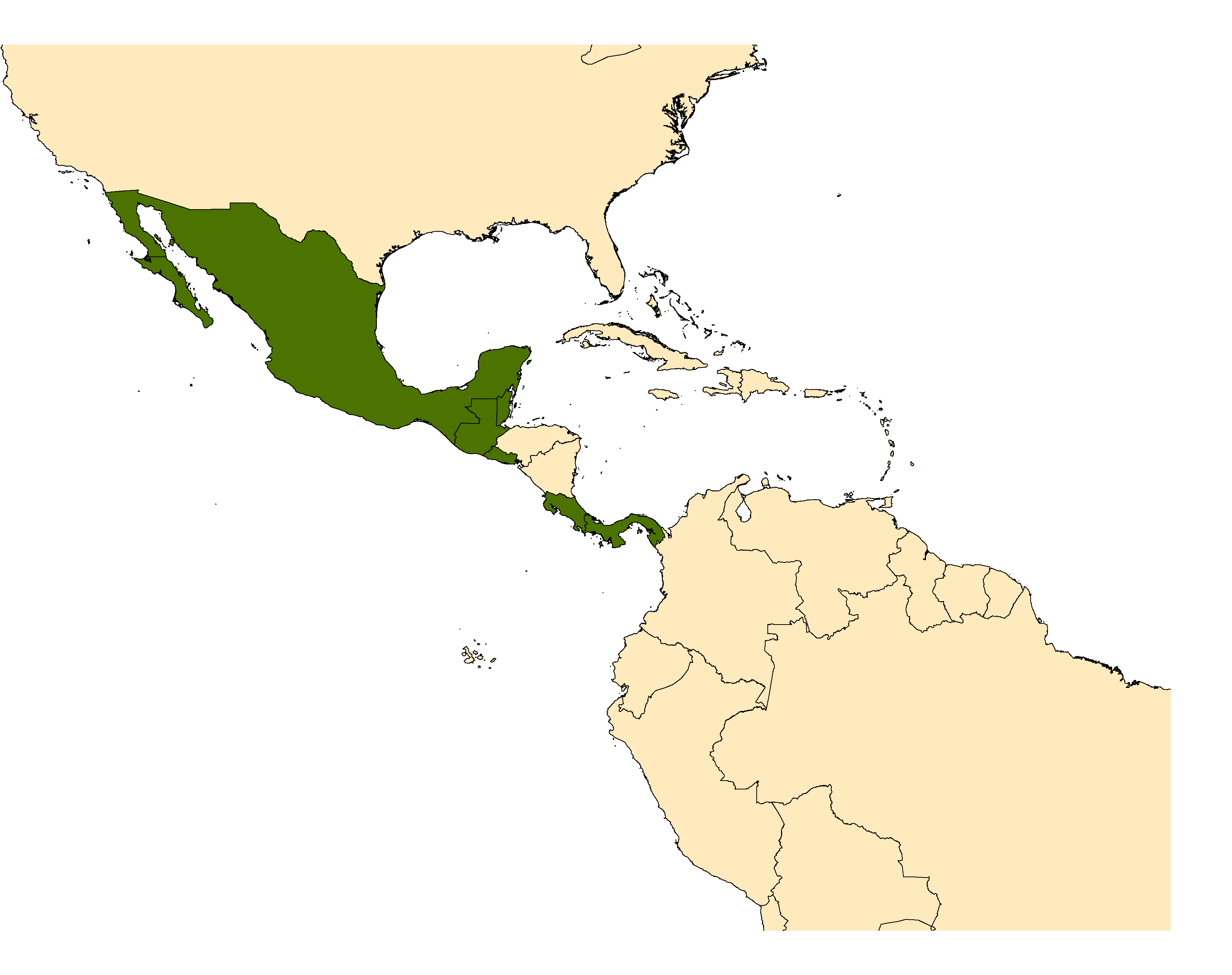
WRBU VECTOR HAZARD REPORTS
None; View other WRBU Vector Hazard Reports
Available GIS Models:
None
IMPORTANT REFERENCES (full citations below)
Komp & Kumm 1938: 253 (M*, F*, L*)
Lane 1953: 796 (M*, F, L*)
Stone & Knight 1955: 288 (type information)
Arnell 1973: 46 (M*, F, P*, L*)
Liria & Navarro 2010 (niche model)
CURRENT SYNONYMS
syn. gorgasi Galindo & Trapido
1956: 228 (M, F, P, L; as mesodentatus subspecies). Type locality: Tapachula, Chiapas, Mexico (USNM). References: Arnell 1973: 46 (synonymy).
syn. alticola Galindo, Trapido & Boshell-Manrique
1956: 231 (M, F, P, L; as mesodentatus subspecies). In: Galindo & Trapido 1956. Type locality: Sumidero Canyon, north of Tuxtla Gutierrez, Chiapas, Mexico (USNM). References: Arnell 1973: 47 (synonymy).
CITED REFERENCES
Arnell, J. H. (1973). Mosquito studies (Diptera, Culicidae). XXXII. A revision of the genus Haemagogus. Contributions of the American Entomological Institute, 10(2), 1–174.
Galindo, P., & Trapido, H. (1956). Descriptions of two new subspecies of Haemagogus mesodentatus Komp and Kumm 1938, from middle America (Diptera, Culicidae). Proceedings of the Entomological Society of Washington, 58, 228–231.
Komp, W.H.W., & Kumm, H.W. (1938). A new species of Haemagogus, mesodentatus, from Costa Rica, and a description of the larva of Haemagogus anastasionis Dyar (Diptera, Culicidae). Proceedings of the Entomological Society of Washington, 40, 253 259.
Lane, J. (1953). Neotropical Culicidae (Vols. I, II). São Paulo: University of São Paulo.
Liria, J., & Navaro, J.-C. (2010). Modelo de nicho ecológico en Haemagogus Williston (Diptera: Culicidae), vectores del virus de la fiebre amarilla. Revista Biomédica, 21, 149–161.
Stone, A., & Knight, K.L. (1955). Type specimens of mosquitos in the United States National Museum: I. The genera Armigeres, Psorophora and Haemagogus (Diptera, Culicidae). Journal of the Washington Academy of Sciences, 282–289.
CITE THIS PAGE
Walter Reed Biosystematics Unit (Year). Haemagogus mesodentatus species page. Walter Reed Biosystematics Unit Website, http://wrbu.si.edu/vectorspecies/mosquitoes/mesodentatus, accessed on [date (e.g. 03 February 2020) when you last viewed the site].



